- Follow us on :

- Personal Finance
- Real Estate
- Leaders of Tomorrow
- India Upfront
- Financial Reports
- Urban Debate
- Car Reviews
- Bike Reviews
- Bike Comparisons
- Car Comparisons
- LATEST NEWS
- Weight Loss
- Men's Fashion
- Women's Fashion
- Baking Recipes
- Breakfast Recipes
- Foodie Facts
- Healthy Recipes
- Seasonal Recipes
- Starters & Snacks
- Cars First Look
- Bikes First Look
- Bollywood Fashion & Fitness
- Movie Reviews
- Planning & Investing
- Inspiration Inc
- Cricket News
- Comparisons
- Education News

Where the school is without classrooms! Netherlands’ School sets new benchmarks in Innovative Learning
This school in netherlands has the formula for holistic development - no classes, curriculum. setting new standards of truly innovative learning, the school allows the child to choose..

We all dream of schools which are open spaces of learning, filled with joys and laughter and possibly no books! Well, Netherlands has found the formula. A school in Netherlands has no classes, no classrooms and no curriculum. Yes, you read that right! The educational institution does not believe in limiting learning with education. The student can choose what he wishes to learn and take his own unique developmental journey.
Break from the conventional? True. The Agora School in Roermond, Netherlands has 250 students and a long waiting list. School's entire approach is centred around projects as it focuses on "learning, not teaching". Students at Agora range from 12 to 18 years in age and each of them is given control over their own educational journey. They are able to explore and learn about topics and things which interest them.
Students can choose from diverse subjects such as German mountain guides, Mongolian horses, blacksmithing, Harry Potter patronuses, tables and skateboards. Each staff member at school is responsible for nearly 17 students each. They have to ensure that there are tangible results and genuine development. Staff also works with each student on ways to continue developing the learning journey.
Rob Houben, Manager of the Agora School in Roermond, the Netherlands said, "We get around 70 requests a week from all over the world from people wanting to come and see what we do here." He told online publishing platform Medium.com that "And I turn most of them down, I just don't have the time to do all that!". Houben can also be called the school's principal or headteacher.
Houben describes Agora "as a blend of a university (where you have knowledge), a Buddhist monastery (where you can think), a theme park (where you can play) and a communal marketplace (where you can trade and swap things)".
Students at school are encouraged to customize their desk. A student has the front of a car attached to his desk which was made with the use of local scrapyard. Students say what they enjoy most about Agora is "the freedom to explore and learn whatever they want".
Houben told, "People look strangely at us. They think because of their school experience you have to have things like four mathematics lessons a week, but in the Netherlands, that isn't the case. The government only asks you to bring students to a certain level within a certain time period."
Agora permits ubiquitous mobile phone and Internet use. "All our children have Chromebooks for free, so they (students) have access to the Internet all day. We allow them to use their phones, all day, because you need to learn how not to use your phone in certain moments. And you don't learn that when you put your phone in a locker or container because then you have to have a container your whole life," according to Houben. Agora tracks the students' progress through Egodact which is a piece of software designed by three students.
Get latest news and live updates, Latest Education News , updates from Education Minister, CBSE News and other Board Results
- Latest education News

Social Change
Secondary education for the future – agora.
- Posted on June 2, 2017

Agora Education in the Dutch media

There are no school subjects, no tests, no homework, no textbooks or methods, no classroom instruction. Sjef Drummen, one of the co-founders of the Agora school in Roermond, the Netherlands, says “We work fully personalized. That is, every student has his or her own learning path. You can compare it to the medieval guild system where every master had four students, fellows. Every child learned in a different way. That’s a fantastic system. Because of all the new technology we have today, we can also work that way again. Knowledge is everywhere, inside and outside the school. But everyone has a different pathway to that knowledge. Teachers are there to support students in that quest.
“We invest in the personal development of children in the early years. They must feel safe, free. We teach them to look at the world, to wonder, to develop. Wow! The world is so beautiful! But also: what’s my role in it? The modern world calls for people who are flexible, creative, inventive, people who can make choices themselves, people with a high degree of adaptability. We strive to help children embrace the uncertain future of tomorrow. “
The final state exams still have to be taken for now, even at Agora. “After two or three years of Agora, the children are so motivated that they are willing to learn. We explain it this way: ‘Kids, the system in the Netherlands is so designed so that we have a little challenge to take together. That challenge is the final exam. After that you get a diploma. You have to do silly things for it. But after that you can head out to meet the future.’ “
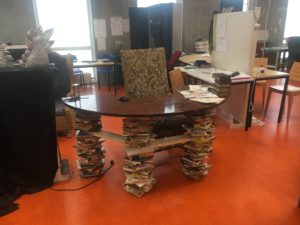
The starting points are clear. Drummen: “First, you need to use your common sense. For example, the fact that boys and girls are different, and learn differently. Secondly, teachers must get space to use their intuition. So the regulations may dictate that the approach has be a certain way. But if you find that this does not fit the child, shouldn’t you do something different? Teachers should always be able to make a choice for the student. Thirdly, it is essential that teachers know how children learn, how the brain develops. And if you involve science – six university professors have helped us to develop our concept – then you know that qualification test are for example awful for children. Whether it’s level or age. You must not put children in a cage. You’ll see,” Drummen explains with a twinkle in his eye, “If you don’t put children in cages they don’t act like rats. Suddenly it does not seem necessary to keep children under the thumb. Keeping order – what rubbish! The children create their own order. ”
Categorising children by their educational level is an abomination to Drummen. “What is that, a ‘havo’ learner? How can you know that at 12, 13 years of age? It is well known that the brain is only mature when children are well into their twenties. Why would you give them that stamp now? I am convinced that every child is able to reach any level. In fact, every child can go to university. Not that they should. Not at all. I am only sure that it is possible theoretically if the educational conditions were good. All children want to grow, want to get better, want to progress. Motivation problems? The Agora students do not suffer from this. There are even students who are disappointed when we reach the weekend or holidays. That’s how much they want to be here. It’s really their place.”

The first seven weeks a student spends in Agora is a “brain bootcamp” where they “de-school” and “un-learn” the children from all the expectations they have of a school. “We are not going to teach you. You are going to learn to teach yourselves”.
The children belong to groups of 15 which are looked after by a coach. The coach’s job is to help the child follow their learning passion, make explicit what they are learning and invite them to complement areas of their development to make it more holistic.
The groups meet at the start of every morning and the discuss an item that is in the news. There is also 30 minutes of silence each day.
All their learning happens through “challenges” which they determine themselves (examples I saw were about how to create a tropical fish tank, to the pyramids of Egypt to understanding lucid dreaming). The coach documents the competencies they are developing and demonstrating in a rigorous digital platform that parents also have access to.
At the start of their time at Agora they are given a guarantee that they will pass the exam they want to pass in the traditional number of years it would take, or less.
The Agora track has been running for four years within the innovative Niekee school and next year they are going to convert the whole school of 600 to the Agora approach.
- For reports in Dutch, including a glowing commendation from Paul Rosenmoller who heads up the Dutch organization of secondary schools, and from the government’s educational inspectors, see http://www.agoraroermond.nl/nieuws-media/ .
- See this website for the new national network of Agora Schools in the Netherlands (c.15 end 2021).
- Here is another English-language article on Agora .
Share this:
What a great story Peter – thanks for sharing this 🙂
[…] there and not a radically new paradigm. It does have big implications for work and employment, education and many other domains, but that is only because they are so stuck in antiquated industrial […]
[…] Update: Since I wrote this article in 2015, Ubiquity has been part of a coalition of innovative learning institutions that has created the Global Accreditation Council (see https://globalaccreditationcouncil.org ). For my latest explanation of our position on accreditation see https://www.ubiquityuniversity.org/accreditation . And Joshua is now 12 (2023) and in his first year at the innovative Dutch secondary school system called Agora that I helped to develop (see https://petermerry.org/secondary-education-for-the-future-agora ). […]
Leave a Reply Cancel reply
This site uses Akismet to reduce spam. Learn how your comment data is processed .
Subscribe to my Monthly Newsletter
Subscribe to my blog via email.
Enter your email address to receive an email notification as soon as a new post is published.
Email Address

Dialogue on Consciousness with Penny Power and Paula Petry

Agora Education – an interview with one of the pioneers

Reinventing Education with Ubiquity University

Seeing more clearly – or am I just getting old and grumpy?

The Volution book is out!

Natural Knowing (vs Artificial Intelligence)

Natural Simplicity

It’s a Pirate’s Life for me!

Wyrd Scientists Win Global Prize

- International edition
- Australia edition
- Europe edition

Rutger Bregman: ‘What if we give children the freedom to play and learn on their own?’
A school with no classrooms, homework or grades encourages creativity and imagination, rather than an ability to sit still and nod
Time to reset: more brilliant ideas to remake the world
I n many places around the world, education has become something to be endured. A new generation is learning to run a rat race where the main metrics of success are your résumé and your pay cheque – a generation less inclined to colour outside the lines, less inclined to dream or to dare, to fantasise or explore.
Can schools operate on a wholly different view of human nature? What if we give children much more freedom to play and learn on their own?
The thing that moved me the most while I was researching my latest book was visiting such a school in the Netherlands . This school, Agora, relies on the intrinsic motivation of the children. There are no classes or classrooms, no homework or grades, no tests, no timetables. There is almost no hierarchy within the staff. Often, there is no hierarchy at all – the students are the ones in charge.
At Agora, children of all ages, academic levels and socioeconomic backgrounds are mixed together. Difference is perceived as normal, and what I quickly noticed was the lack of bullying. Bullying is often regarded as part and parcel of being a kid. Not so, say sociologists, who have compiled extensive research on the places where it is endemic, such as British boarding schools (the kind that inspired William Golding’s Lord Of The Flies). And little wonder: these schools resemble prisons. You can’t leave, you have to earn a place in a rigid hierarchy, and there’s a strict division between pupils and staff.
At the moment, we spend billions encouraging our biggest talents to rise up the career ladder, but once at the top they often ask themselves what it’s all for. Recent research in 47 developed countries found that a quarter of workers doubt the importance of their work. Most of these “meaningless jobs” are in the private sector – in banks, ad agencies and law firms. Meanwhile, politicians tell us we need to be more educated, earn more money and bring the economy more “growth”.
But what do all those degrees really represent? Are they proof of creativity and imagination, or of an ability to sit still and nod? It’s like the philosopher Ivan Illich said decades ago: “School is the advertising agency which makes you believe that you need the society as it is.”
Schools like Agora prove there is a different way. The question is not: can our kids handle the freedom? The question is: do we have the courage to give it to them?
- Life and style
- 21 brilliant ideas to remake the world
- Netherlands
- Economic policy
Most viewed
20 Netherlands Education Facts (all about schooling in The Netherlands)
Did you know that the Dutch were the best non-native English speakers in the world? Or that a regular school day in the Netherlands ends at 3 PM?
Discover more thanks to these 20 interesting facts about schooling in the Netherlands ! 🇳🇱 🎓
TABLE OF CONTENTS
The Best Facts About School in The Netherlands
Dutch school hours, general facts about schooling in the netherlands, more education facts, the full list of 20 dutch school facts.
The Netherlands is a small lowland country. It is located in western Europe, and it also has territories in the Caribbean. Its capital city is Amsterdam, which has a bit more than 872,000 inhabitants.
An interesting part of the country that I wanted to tackle is its education. In light of that, I have listed my 20 best facts about the Netherlands education system, and I hope you will love them:
1. There are bilingual primary schools in the Netherlands
Because of how important the English language is nowadays, the Dutch government has decided to try using bilingual primary schools .
Even though most primary schools still teach in Dutch, these bilingual primary schools teach in English for about 30 percent to 50 percent of the day, starting at age 4.
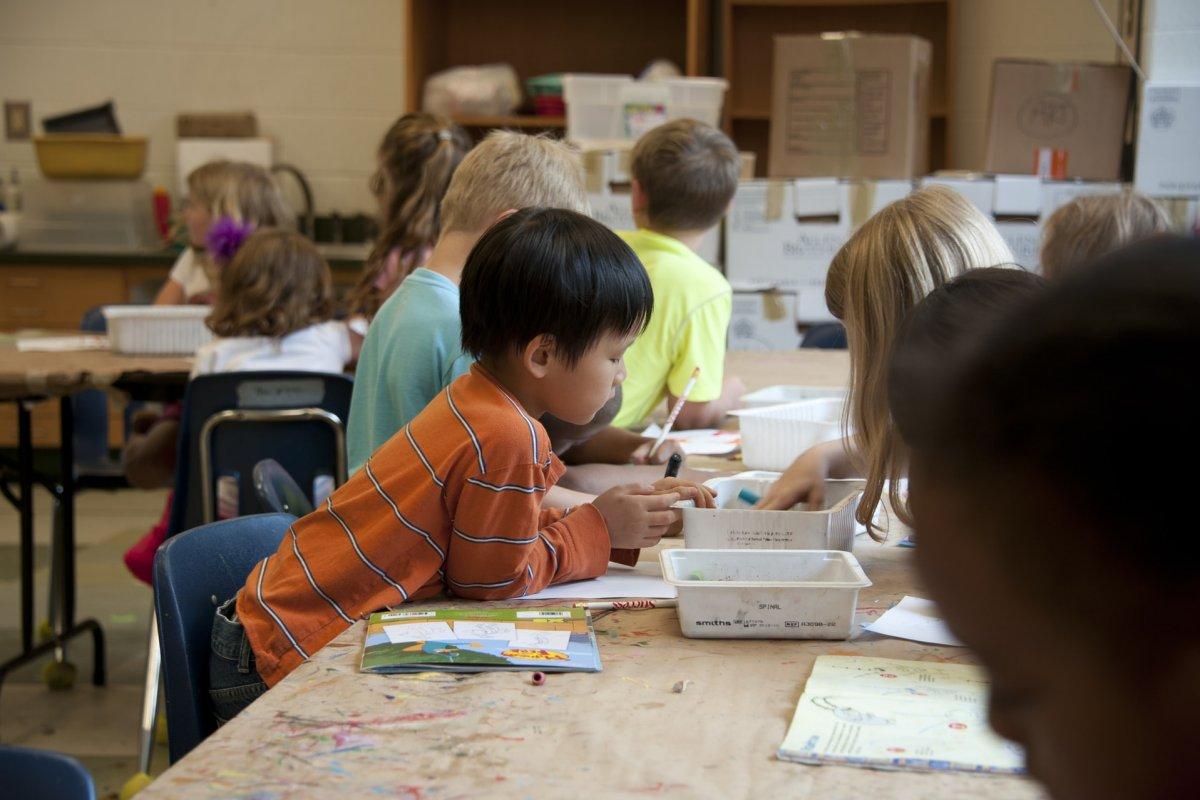
2. It can be tedious to relocate to the Netherlands
If you have a family, and you want to live in the Netherlands, think about education.
While it should be easy for young children, older children who have never spoken Dutch in their lives might have trouble. And even if you choose bilingual primary and secondary schools, Dutch is spoken around 50 percent of the day!
3. There are options for foreign students in the Netherlands
Nevertheless, if you do not plan on staying for very long in the Netherlands, or if you chose to teach English only to your children, there are still international schools that exclusively teach in English.
Another option is choosing some bilingual schools which offer special programs for non-Dutch speakers.
4. There are 3 types of secondary education institutes in the Netherlands
Primary education in the Netherlands lasts 8 years, for children aged 4 to 12.
After that comes secondary education, the equivalent of high school in the Netherlands. Depending on their results as well as the advice from the school, they need to choose between one of the following paths: “voorbereidend middelbaar beroepsonderwijs”, “hoger algemeen voortgezet onderwijs” or “voorbereidend wetenschappelijk onderwijs”.
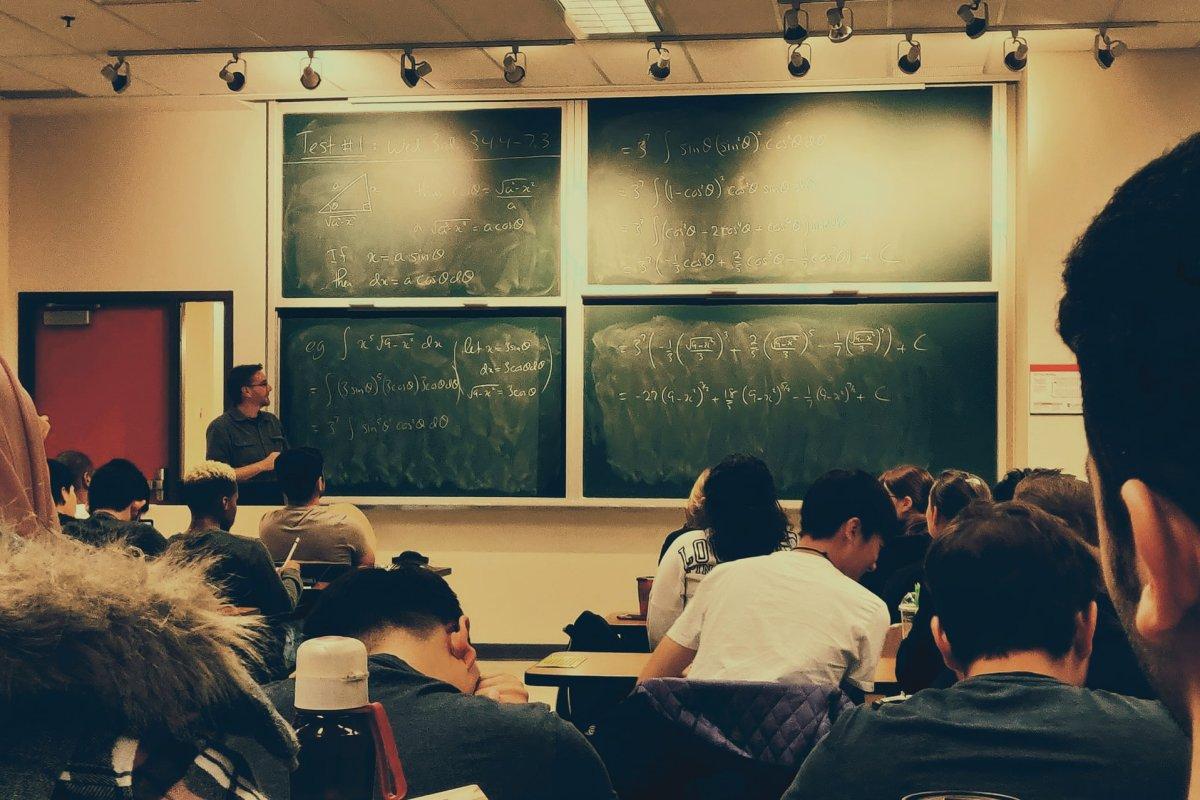
5. The first secondary education institute in the Netherlands is VMBO
“Voorbereidend middelbaar beroepsonderwijs”, often called VMBO, is the first possibility when it comes to secondary education in the Netherlands.
It is pre-vocational secondary education, and it lasts 4 years. It combines both theoretical and academic training. 60 percent of Dutch students choose VMBO.
6. There are four levels in VMBO
Depending on their score, students will be assigned to one of the four education levels in VMBO.
Their acronyms are VMBO-TL (theoretical learning path), VMBO-GL (mixed learning path), VMBO-KBL (middle management-oriented learning path), and VMBO-BBL (baic profession-oriented learning path). There is also full-time practical education for children who would not obtain a VMBO-diploma otherwise.
7. The second secondary education institute in the Netherlands is HAVO
“Hoger algemeen voortgezet onderwijs”, often called HAVO, is the second possibility when it comes to secondary education in the Netherlands.
It is higher general continuing education, and it lasts 5 years. After graduating from HAVO, students can access the HBO level (polytechnic) of tertiary education.

8. HAVO is divided into two phases: general and specialized education
The first three years of HAVO are very general, and are the same for everyone: languages, history, sciences, mathematics, and arts are taught.
Then come the last two years, where students need to choose one of four profiles: culture and society, economy and society, nature and health, or nature and technology.
9. The third secondary education institute in the Netherlands is VWO
“Voorbereidend wetenschappelijk onderwijs”, often called VWO, is the third possibility when it comes to secondary education in the Netherlands.
It is preparatory scientific education, and it lasts 6 years. With a VWO diploma, students can access WO training in universities (though not all of them have the same admission criteria).
10. There are two possibilities in VWO: “atheneum” and “gymnasium”
Atheneum and gymnasium programs are the two possible paths in VWO. The gymnasium program is similar to the other one but adds Latin and Greek as compulsory courses.
Depending on schools, these ancient languages might be taught in the first or the second year, usually starting with Latin.
11. Dutch students do not have many homework to do
In the Netherlands, students can enjoy their free time: there is not that much homework.
They follow what research has shown: play and exercise are vital to children’s school performance. Because of this, Dutch children aged under 10 will receive little to no homework every day, so they can have time for daily exercise. This may be one of the reasons why Netherlands has one of the best education systems in the world!

12. Dutch students usually eat at home instead of at the school cafeteria
While school days last from around 8:30 AM to 3 PM in the Netherlands, students go home for lunch instead of eating at a school cafeteria.
Also, Wednesdays are even more dedicated to out-of-school activities, since schools dismiss students at around noon.
13. Learning a second language is very important in Dutch education
While not many countries put that much emphasis on it, learning a second language is primordial in the Netherlands.
As you know, there are bilingual schools, but generally, all Dutch students learn English, starting very early. There are even schools that require a third language.
14. Education in the Netherlands is affordable compared to Dutch people’s income
Education in the Netherlands is compulsory and free until the age of 16. After that, parents need to pay annual tuition fees for their children’s higher education.
The average cost of said tuition fees is around $2,000 per year, and low-income families can also apply for grants.

15. There are 152 international schools in the Netherlands
English is very important for Dutch people, and this is why so many of them speak it. As a matter of fact, Dutch people are the most proficient English speakers in the world !
To make this possible, they added English very early in their curriculum, but there are also more than 150 international schools in the country that mostly (or only) teach in English.
16. Every child in the Netherlands has access to the regular school in their neighborhood
Education in the Netherlands is very inclusive: even children who require very specific additional support are welcome and will be able to attend regular school, which is responsible for providing a suitable place for these children to learn.
If the support is too intensive, there are also special needs schools.
17. Homeschooling is generally not allowed in the Netherlands
Generally speaking, homeschooling is forbidden in the Netherlands.
Nevertheless, exceptions can be made for families with no school satisfying their religion or life conviction needs in the vicinity. When a child joins this system, it will be very hard for him to go back to regular school though.
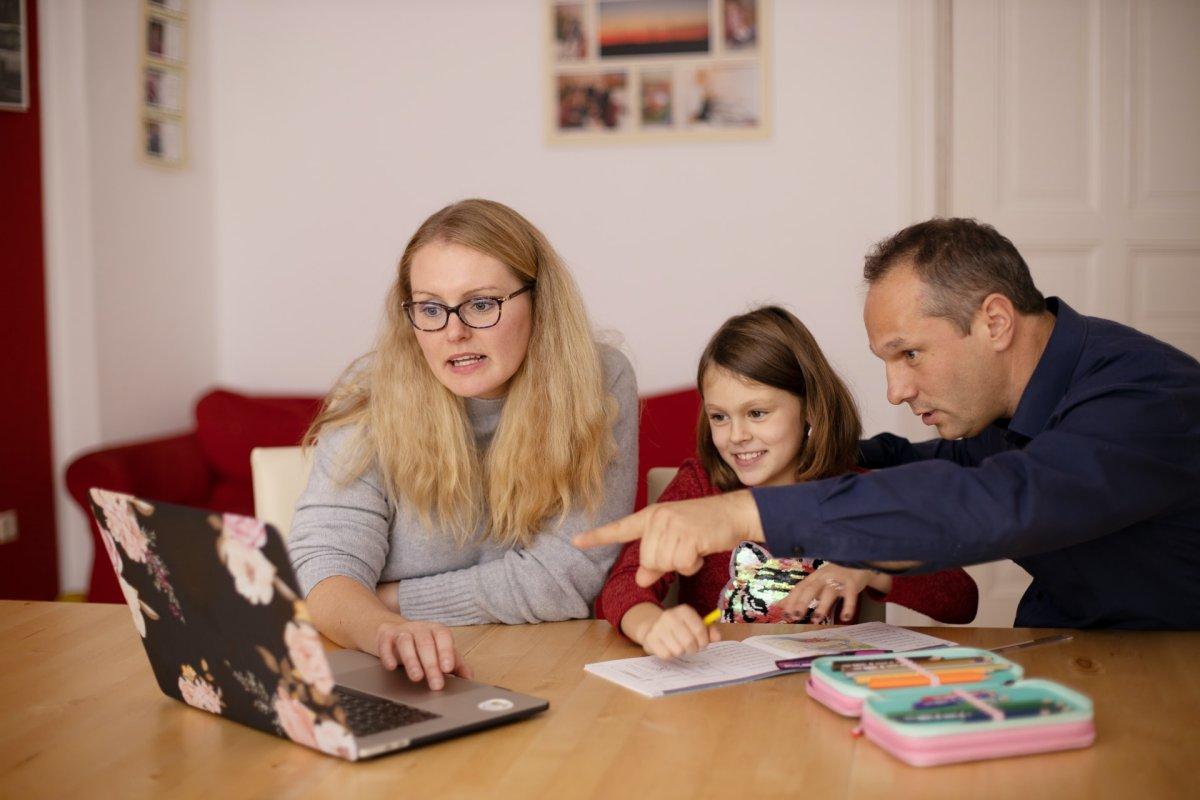
18. There are two types of higher education institutes in the Netherlands
Higher education is divided into two parts in the Netherlands: research-oriented education (WO) and higher professional education (HBO).
The first one is typically offered by research universities, while the second one takes place in universities of applied sciences . They both lead to Bachelor’s or Master’s degrees, but in WO students can also pursue a PhD degree.
19. The Netherlands use a credit system for their education
In order for education to be on equal footing in Europe, many countries use the European Credit Transfer and Accumulation System, better known as ECTS. This enables anyone to move to another country, or temporarily study abroad.
These credits represent 28 hours of study each, and a year is worth 60 credits.
20. There are examinations as early as primary school in the Netherlands
At the end of primary school, children need to pass their first examination. Each school decides which of the government-approved tests they choose, but all students in one school take the same type of test.
There is also an examination at the end of secondary education.
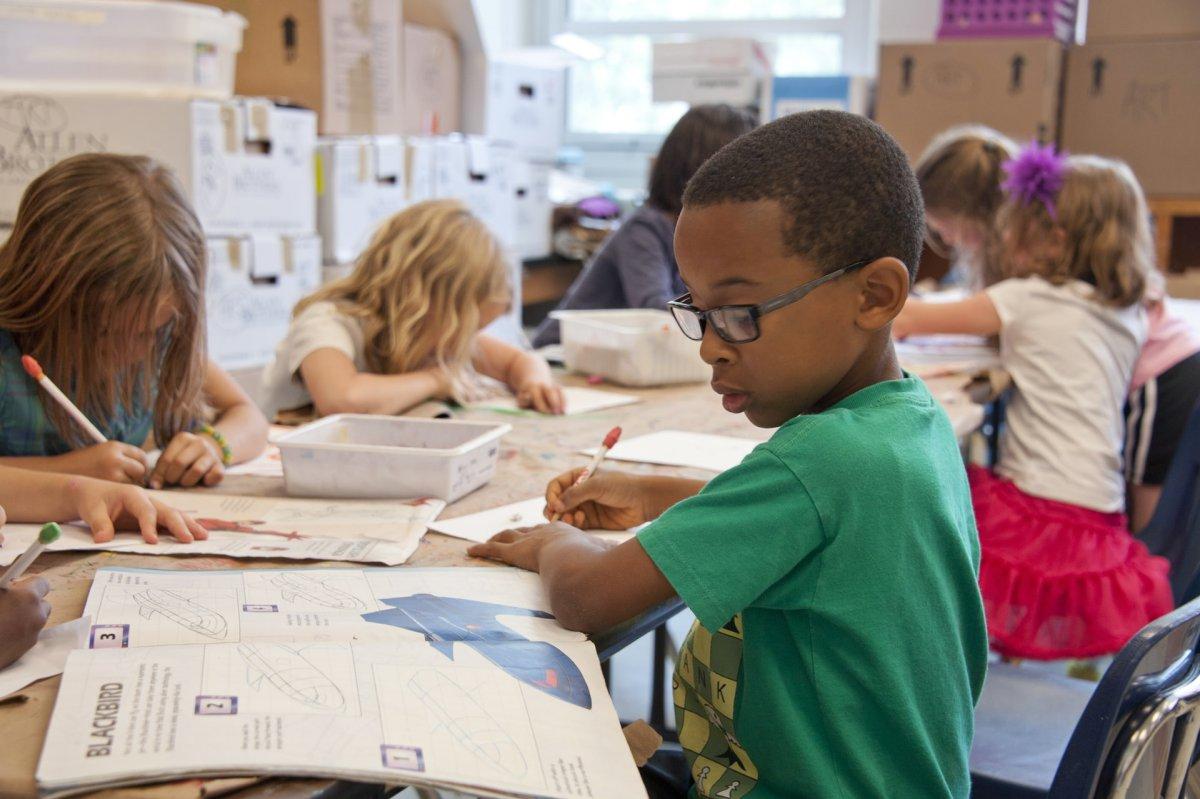
So there you have them, these were all my 20 interesting facts about the Netherlands school system. I hope you enjoyed them and that you learned something new today.
In case you want to learn more about the rest of the country, feel free to keep reading, as I still have lots of things to tell you about:
Let’s keep going with our next part, dedicated to Dutch school hours. The typical school schedule in one country can often be very different from your own, and it’s always interesting to have more details on how students go on about their day.
The Netherlands Primary School Schedule
Mandatory education in the Netherlands starts with primary school, for children aged 5 (though some schools accept 4-year-old kids).
Between the ages of 4 and 12, Dutch children attend primary school. The first 2 years are dedicated to basic skills, before shifting to a more academic path starting in group 3 (primary education ranges from group 1 to group 8, similar to grades).
At the end of group 8, almost every school administers the “ Cito test ”, an aptitude test. It is not mandatory though.
Usually, school starts between 8:30 AM and 8:45 AM before ending between 3 PM and 3:15 PM. The school year typically runs from August or September to June or July.
Dutch High School Schedule
After primary school comes secondary education in the Netherlands.
Dutch children immediately enter high school at the age of 12: depending on their Cito results and the advice of the school, they will choose one of the three possible tracks (“pre-vocational secondary education”, “higher general continued education” or “preparatory scientific education”).
High school lasts 6 years.
This last part is dedicated to general facts about the Dutch education system. More specifically, we’ll check 2 key figures that will give you a better understanding of the Netherlands education level.
Enrollment in tertiary education for The Netherlands: 78.5%
(Average for regions: Sub-Saharan Africa: 8.6% | South Asia: 20.8% | Arab States: 36.4% | East Asia: 36.5% | Latin America: 43.3% | Europe and Central Asia: 62% | North America: 84%)
Data from World Bank EdStats/UNESCO
The Netherlands literacy rate: 99%
(Average for regions: Sub-Saharan Africa: 65.3% | South Asia: 72.9% | Arab States: 79.4% | Latin America: 93.7% | East Asia: 95.8% | Europe and Central Asia: 98.5%)
Do you want even more education facts about other countries?
Check out these facts:
- Education in Germany
- Education in Poland
- Education in Ireland
Or click here to see ALL the education facts up on the blog!
- There are bilingual primary schools in the Netherlands
- It can be tedious to relocate to the Netherlands
- There are options for foreign students in the Netherlands
- There are 3 types of secondary education institutes in the Netherlands
- The first secondary education institute in the Netherlands is VMBO
- There are four levels in VMBO
- The second secondary education institute in the Netherlands is HAVO
- HAVO is divided into two phases: general and specialized education
- The third secondary education institute in the Netherlands is VWO
- There are two possibilities in VWO: “atheneum” and “gymnasium”
- Dutch students do not have many homework to do
- Dutch students usually eat at home instead of at the school cafeteria
- Learning a second language is very important in Dutch education
- Education in the Netherlands is affordable compared to Dutch people’s income
- There are 152 international schools in the Netherlands
- Every child in the Netherlands has access to the regular school in their neighborhood
- Homeschooling is generally not allowed in the Netherlands
- There are two types of higher education institutes in the Netherlands
- The Netherlands use a credit system for their education
- There are examinations as early as primary school in the Netherlands
Share the knowledge! Click on the buttons below to share these Dutch school facts with your friends, and help them learn more about the world 🙂
Hey, I'm Kevin

I'm a professional photographer, with over a decade of experience in the travel industry. I worked with countless travel brands, and my travel advice has been featured in major publications such as CNN, Forbes & the New York Magazine. But the best travel advice is definitely found here on my website! I'm all about adventure travel, hiking and exploring the outdoors - even if I often find myself exploring cities with my wife Nesrine. If you have any questions, leave a comment on this post or reach out by email at: [email protected]
Come say hi on social!
Countries I've visited
Recommended Reading
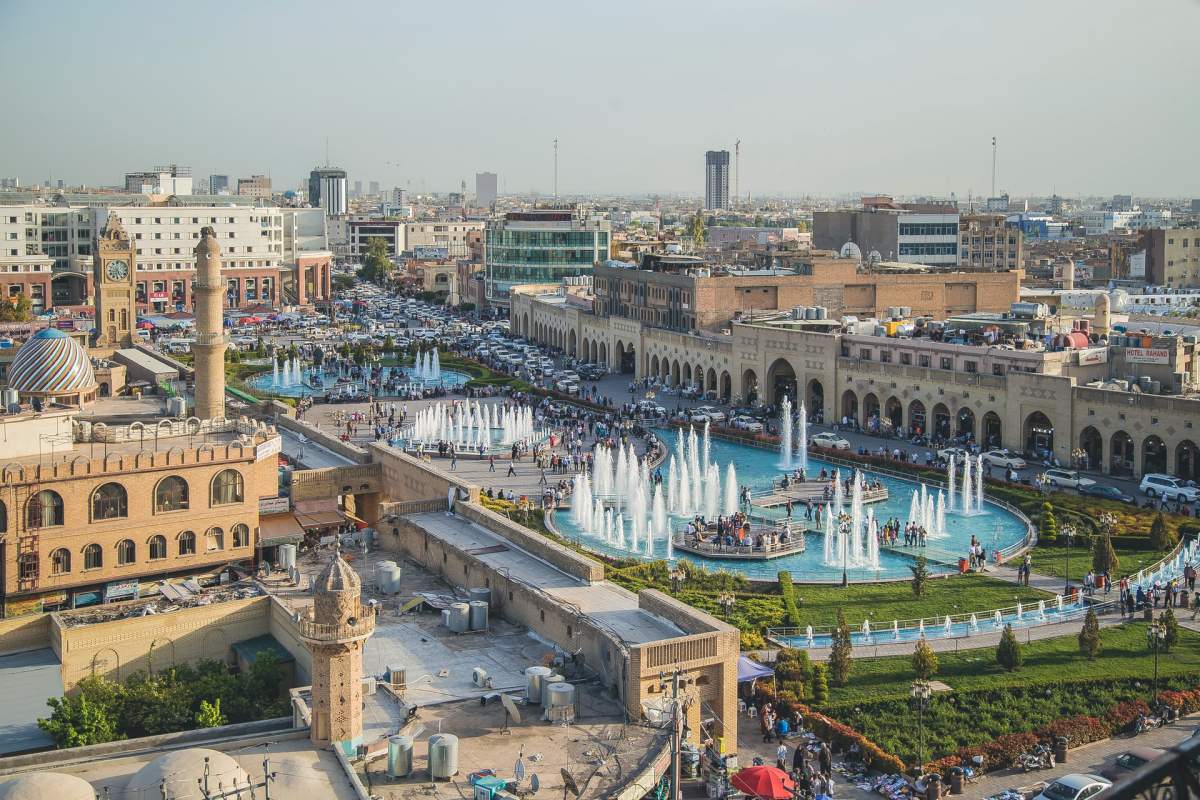
Leave a Reply Cancel reply
Your email address will not be published. Required fields are marked *
Notify me when new comments are added.
- Personal Finance
- Today's Paper
- Partner Content
- Entertainment
- Social Viral
- Pro Kabaddi League
Netherlands school that has no classes or curriculum

Kunwar's Global School - intelligence beyond boundaries
Indian students engage more in extra classes, co-curricular activities than peers: cambridge study, 'cutting down classroom syllabus to facilitate experiential, 'listening practice sessions set up all over country', 'experimental learning' to be punch line for cbse in 2019-20 academic session, nizamabad ls polls mooted as case study for isb, hearing in telangana exam fiasco case adjourned to may 15, 1 killed, 8 injured in us school shooting (2nd lead), teenage girls more often bullied than boys, vidya excited to play 'human computer' shakuntala devi.
Disclaimer: No Business Standard Journalist was involved in creation of this content
Don't miss the most important news and views of the day. Get them on our Telegram channel
First Published: May 08 2019 | 7:42 PM IST
Explore News
- Hindustan Unilever Share Price MMTC Share Price Tata Steel Share Price NHPC Share Price Tejas Networks Share Price IRFC Share Price Adani Green Share Price RIL Share Price SBI Share Price HDFC Bank Share Price IDBI Bank Share Price
- Latest News Company News Market News India News Politics News Cricket News Personal Finance Technology News World News Industry News Education News Opinion Shows Economy News Lifestyle News Health News
- Today's Paper About Us T&C Privacy Policy Cookie Policy Disclaimer Investor Communication GST registration number List Compliance Contact Us Advertise with Us Sitemap Subscribe Careers BS Apps
- Budget 2024 Lok Sabha Election 2024 IPL 2024 Pro Kabaddi League IPL Points Table 2024

5 Impressions of the Dutch Educational System
When I wrote “ The 8 Secrets of Dutch Kids, the Happiest Kids in the World “, I received quite a few disgruntled complaints, especially in regards to my 4th secret -“Dutch kids feel no pressure to excel in school and have very little stress. They have no homework or have very little and thus have plenty of time to play after school.”
Since my time is actually very scarce (I am an expat mom with absolutely no family help, a workaholic husband and a precocious toddler), I decided to dedicate a blog post directly addressing the comments about the Dutch educational system.
I’m convinced that part of the underlying reason for the resounding happiness of Dutch kids is because they are in a relatively, stress free educational environment that emphasizes learning and here are my five reasons why:

1. Dutch researchers reiterate the stance that pressure on academic performance is not as high as compared to the rest of the world.
Utrecht University , the Trimbos Institute and the Netherlands Institute for Social Research participated in a comprehensive study where 200,000 children aged 11, 13 and 15 from 39 different countries were surveyed. The children were asked how happy and healthy the children felt, their relationships with their parents and friends and their overall school experience.
According to Professor Wilma Vollebergh of Utrecht University , “The Netherlands has a social culture, with open and safe relationships between parents and their children, and the same applies to the relationships that children have with each other. The pressure to perform is also not as high here .”
I’m trusting that the Dutch kids surveyed were honest about their answers and that these Dutch researchers know a thing, or two about the Dutch educational system. Wouldn’t you?
2. For the most part, Dutch students under the age of 10, receive very little or almost no homework .
Some newspapers circulating around actually state that abslutely no homework given to school children under the age of ten. The amount of homework depends upon the discretion of the local schools, but overall, Dutch teachers and parents recognize the importance of play after school is more important than hitting the books. Students start receiving homework at the end of their primary school year but definitely not in the same quantity as those in the United States. Who really benefits from homework anyway ?

3. Dutch students are tested for their relative intelligence , but the advice given is not binding .
At the end of the their 8th year of school, usually around age 12, Dutch children must take a CITO test designed to evaluate their overall “ intelligence “. While there might be some moderate levels of stress, overall, Dutch students take it with stride. Here is what is crucial to understand –the results of the CITO test are suggestion only .
According to the Dutch government’s official stance, “primary schools advise each child and their parents the most appropriate type of secondary education, based on the CITO test score, the child’s performance in previous years and his/her personal interests.” An important caveat is-“ The advice is not binding .”
The parents and child are ultimately the ones who decide which best educational track the child would be happiest in. For a more detailed, official explanation of the Dutch educational system, please refer to the official Dutch Education website.
4. Dutch high school students do not face the same high anxiety stress levels as students from the rest of the world ( such as the United States , Singapore, China, and Korea to name a few).
When a group of VWO Dutch students were shown a video called Race to No Where depicting the streotypical American high school experience, they unanimously agreed that they did not experience anything even remotely similar to what they saw in the video.

5. There is a general acceptance of mediocrity among Dutch parents and kids.
In the same Volkskrant article , one pre-university VWO student, which supposedly means that she is part of the intellectual elite, stated:
The relatively relaxed environment can (being the operative word, not always) also extend to places of higher education. According to the University of Twente , international students are given the impression that:
“Competition hardly plays a role in Dutch educational culture: students are seldom graded against each other. The teacher sets a minimum score and passes all students that meet this criterion. Dutch students are usually not very interested how they rank in class; they are mainly concerned with passing the course. Students striving to be the best will not talk about it as it is not done in the Netherlands to be too competitive or work too hard
You can still become very successful regardless of how well you do in school, or what level of schooling you’ve accomplished. Supposedly more is being done in parliament to change this attitude. The Volkskrant cautions this movement as being spearheaded by “ a significant number of ministers who only got nines by holding their report cards upside down .”

Bonus Number 6 : If you actually graduate from a pre-university VWO program, you can apply directly to medical school. High school students who graduate with an 8 get automatic admission into a 6 year medical school program. Those who scored lower can join a weighted lottery to get into medical school. And they can keep reapplying to the medical school lottery up to a certain number of times. How lucky is that?
In all fairness, Dutch students may still face moderate levels of stress. However , it is important to keep in mind (assuming that I am writing to a world audience ), that the “stress” Dutch students encounter is definitely not the same degree as to those students in much more competitive environments, particularly their Asian counterparts. There are also many Dutch families who place a lot of importance on the academic performance of their children. In fact, times are changing and there might be a social revolution that would end the cultural emphasis on being mediocre, the infamous zesjescultuure .
Most importantly, the current and future happiness of Dutch children is not inextricably linked to what level schooling they are placed under, nor does it really determine their future earning potential . Actually, being born Dutch pretty much guarantees you a decent life (but that’s a whole other blog post all together-please come back to read that one!).
Perhaps the rest of the world can learn a bit more about this obscure Nothern European country that consistently ranks time and time again as having the happiest kids in the world.
What’s it like in other countries? Do they also experience a similar institutional educational system where there is less stress?


Understanding the Dutch Education System
by Annebet van Mameren | Education , New to Amsterdam , Quick Start
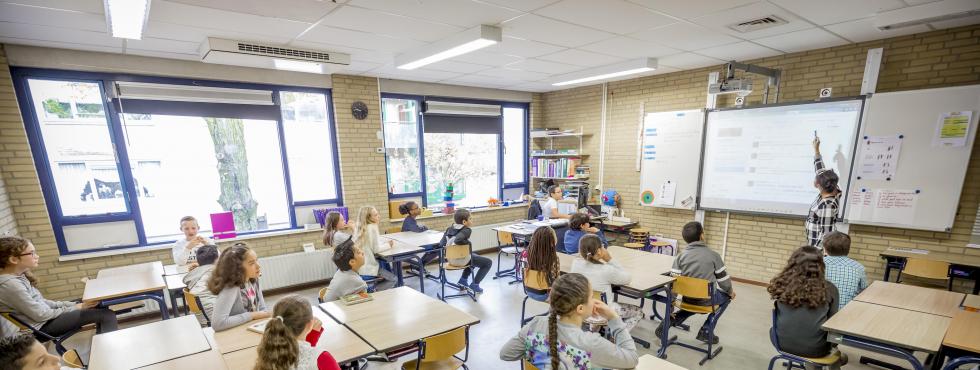
One of the main challenges for families new to Amsterdam is figuring out the school system. Annebet van Mameren, from relocation specialists New2nl, explains the basics.
Introduction
In the Netherlands, school is compulsory for children from the age of 5 until 16, or until they have a diploma. The philosophy behind the Dutch education system is to encourage pupils to live and learn in an open-minded, independent, and creative manner.
Generally, schools in the Netherlands offer high-quality education. For example, the renowned global Pisa/OECD survey among 15-year-olds shows high rankings for Dutch pupils, especially in mathematics, and all 13 state-funded Dutch universities score well in The Times Higher Education World University Rankings.
School Types
All Dutch schools are obliged to adhere to core objectives set by the government. These specify what pupils in all schools need to accomplish each year. Individual schools may fill in specific details. For example, some schools have chosen to dedicate some extra attention to arts (the ‘art magnet’ ( kunstmagneet) schools), science and technology, or foreign languages.
In the Netherlands, there are both regular ( openbare ) and special ( bijzondere ) schools. The regular schools are funded and run by the government, whereas special schools have their own board, usually consisting of parents or the foundation that set them up. The special schools get the same funding from the government as the regular schools.
Special schools should not be confused with special-needs schools that teach pupils with (severe) learning problems. Most special schools are religious (e.g. Catholic, Protestant, Islamic, Jewish), or follow specific pedagogic principles (e.g. Montessori, Waldorf/Steiner, Dalton, Jenaplan). Usually, the religious schools are fairly moderate in terms of religion and are open to children who have a different religion or are not religious.
Some schools follow new educational trends. You’ll find, for example, iPad schools and those with a bilingual curriculum (usually Dutch and English). The bilingual schools in Amsterdam are De Visserschool, DENISE, School of Understanding, Kindercampus Zuidas, and Little Universe School. These schools vary in the amount of time they teach in English, and they usually require a child aged 6 or older to have a decent level of Dutch before they can join classes with their Dutch-speaking peers (see below).
International Families in Dutch Schools
4 and 5-year-olds who don’t speak Dutch can usually start a regular primary school straight away. They normally pick up the language quickly and are (almost) fluent before the ‘real learning’ starts at age 6. In Dutch schools, children usually start the first day after their fourth birthday, and most schools combine ages 4-6 in one class called the kleuterklas . In the kleuterklas, the focus is on learning through play, Dutch language acquisition, social and motor skills, and gradual preparation for reading and writing.
Children aged 6 and older are usually required to follow a Dutch immersion programme first. This takes about a year, after which they can continue their education with children of the same age at a regular school.
As the schools’ approach and experience with non-Dutch families vary greatly, it is always a good idea to ask specific questions about this before you choose a school.
Most Dutch primary schools don’t give homework until the higher classes, or give no homework at all. This means that, as a non-Dutch speaking parent, you won’t need to worry much about not being able to help your child with his or her homework.
It is usual that two parents volunteer to be a ‘class parent’ ( klassenouder ). They meet with the teacher regularly and keep the other parents updated (usually by email) about what is going on in the class and what is expected from the parents. If you don’t speak Dutch, you could ask the class parents to regularly explain to you what is happening, to avoid missing anything.
The Application Procedure
The application procedure for Dutch schools differs by city, and sometimes even by school. Schoolwijzer is your starting point for the Dutch schools in Amsterdam.
In general, you have priority for the eight schools closest to your house which take part in the central application system. On the application form that the Municipality sends to your home address, you rank at least 5 schools in order of preference, and then a lottery decides which school your child will be placed in. You may also apply to a school where you don’t have priority, but there your chances will be much smaller. On average, the application deadline is when your child is 3 years 2 months old, although the actual cut-off point can differ from this by a few months.
There are some schools, called eenpitter schools, which have pulled out of the central application system. Most of these are located in the South (Zuid) part of Amsterdam. They have their own lottery, application form, and deadline. You can apply to these schools in addition to the central schools. Read more about Amsterdam’s school application policy.
I hope that your children have a happy and successful time in their chosen school(s) in the Netherlands!
Useful Education-Related Websites
National websites
Scholen Op De Kaart
10,000 Scholen
National school holidays
Special needs education in the Netherlands (in Dutch)
School inspection
Private (fee-paying) schools in the Netherlands (all levels)
City-Specific Websites
Information for International Families
Amsterdam Mamas’ Dutch Education Group on Facebook
Expat Special Educational Needs Group in the Netherlands
Dutch immersion classes (for non-Dutch speaking children aged 6+)
Article: Going Dutch with your children?
Article: Helping your child integrate into Dutch School
Independent education consultant for international families in the Netherlands
photo credit: Flickr via Photo Pin
Annebet van Mameren
Annebet van Mameren is Dutch, and married to an American. They are based in Amsterdam, and have two sons who they are raising bilingually; and who go to Dutch primary. Annebet has a research background in Intercultural Conflicts at Work, along with many years of experience in the corporate world. She has spent time living abroad, and has a thorough understanding of the issues faced by international families when selecting a school for their children in the Netherlands.
New2nl is a network run by Annebet van Mameren, bringing together experts in schooling, housing, and taxes, to provide services for international families in the Netherlands.
Events Calendar
- See all Events

#findanactivity
Want to enrol your child in a program in Amsterdam? Peruse our partners for a program that will enhance growth with your children:
- Gym and sports
- Drama & dance
- Summer Camps

#findabusiness

#affiliatepartners
Homework could have an impact on kids’ health. Should schools ban it?
Professor of Education, Penn State
Disclosure statement
Gerald K. LeTendre has received funding from the National Science Foundation and the Spencer Foundation.
Penn State provides funding as a founding partner of The Conversation US.
View all partners

Reformers in the Progressive Era (from the 1890s to 1920s) depicted homework as a “sin” that deprived children of their playtime . Many critics voice similar concerns today.
Yet there are many parents who feel that from early on, children need to do homework if they are to succeed in an increasingly competitive academic culture. School administrators and policy makers have also weighed in, proposing various policies on homework .
So, does homework help or hinder kids?
For the last 10 years, my colleagues and I have been investigating international patterns in homework using databases like the Trends in Mathematics and Science Study (TIMSS) . If we step back from the heated debates about homework and look at how homework is used around the world, we find the highest homework loads are associated with countries that have lower incomes and higher social inequality.
Does homework result in academic success?
Let’s first look at the global trends on homework.
Undoubtedly, homework is a global phenomenon ; students from all 59 countries that participated in the 2007 Trends in Math and Science Study (TIMSS) reported getting homework. Worldwide, only less than 7% of fourth graders said they did no homework.
TIMSS is one of the few data sets that allow us to compare many nations on how much homework is given (and done). And the data show extreme variation.
For example, in some nations, like Algeria, Kuwait and Morocco, more than one in five fourth graders reported high levels of homework. In Japan, less than 3% of students indicated they did more than four hours of homework on a normal school night.
TIMSS data can also help to dispel some common stereotypes. For instance, in East Asia, Hong Kong, Taiwan and Japan – countries that had the top rankings on TIMSS average math achievement – reported rates of heavy homework that were below the international mean.
In the Netherlands, nearly one out of five fourth graders reported doing no homework on an average school night, even though Dutch fourth graders put their country in the top 10 in terms of average math scores in 2007.
Going by TIMSS data, the US is neither “ A Nation at Rest” as some have claimed, nor a nation straining under excessive homework load . Fourth and eighth grade US students fall in the middle of the 59 countries in the TIMSS data set, although only 12% of US fourth graders reported high math homework loads compared to an international average of 21%.
So, is homework related to high academic success?
At a national level, the answer is clearly no. Worldwide, homework is not associated with high national levels of academic achievement .
But, the TIMSS can’t be used to determine if homework is actually helping or hurting academic performance overall , it can help us see how much homework students are doing, and what conditions are associated with higher national levels of homework.
We have typically found that the highest homework loads are associated with countries that have lower incomes and higher levels of social inequality – not hallmarks that most countries would want to emulate.
Impact of homework on kids
TIMSS data also show us how even elementary school kids are being burdened with large amounts of homework.
Almost 10% of fourth graders worldwide (one in 10 children) reported spending multiple hours on homework each night. Globally, one in five fourth graders report 30 minutes or more of homework in math three to four times a week.
These reports of large homework loads should worry parents, teachers and policymakers alike.
Empirical studies have linked excessive homework to sleep disruption , indicating a negative relationship between the amount of homework, perceived stress and physical health.

What constitutes excessive amounts of homework varies by age, and may also be affected by cultural or family expectations. Young adolescents in middle school, or teenagers in high school, can study for longer duration than elementary school children.
But for elementary school students, even 30 minutes of homework a night, if combined with other sources of academic stress, can have a negative impact . Researchers in China have linked homework of two or more hours per night with sleep disruption .
Even though some cultures may normalize long periods of studying for elementary age children, there is no evidence to support that this level of homework has clear academic benefits . Also, when parents and children conflict over homework, and strong negative emotions are created, homework can actually have a negative association with academic achievement.
Should there be “no homework” policies?
Administrators and policymakers have not been reluctant to wade into the debates on homework and to formulate policies . France’s president, Francois Hollande, even proposed that homework be banned because it may have inegaliatarian effects.
However, “zero-tolerance” homework policies for schools, or nations, are likely to create as many problems as they solve because of the wide variation of homework effects. Contrary to what Hollande said, research suggests that homework is not a likely source of social class differences in academic achievement .
Homework, in fact, is an important component of education for students in the middle and upper grades of schooling.
Policymakers and researchers should look more closely at the connection between poverty, inequality and higher levels of homework. Rather than seeing homework as a “solution,” policymakers should question what facets of their educational system might impel students, teachers and parents to increase homework loads.
At the classroom level, in setting homework, teachers need to communicate with their peers and with parents to assure that the homework assigned overall for a grade is not burdensome, and that it is indeed having a positive effect.
Perhaps, teachers can opt for a more individualized approach to homework. If teachers are careful in selecting their assignments – weighing the student’s age, family situation and need for skill development – then homework can be tailored in ways that improve the chance of maximum positive impact for any given student.
I strongly suspect that when teachers face conditions such as pressure to meet arbitrary achievement goals, lack of planning time or little autonomy over curriculum, homework becomes an easy option to make up what could not be covered in class.
Whatever the reason, the fact is a significant percentage of elementary school children around the world are struggling with large homework loads. That alone could have long-term negative consequences for their academic success.
- Trends in Mathematics and Science Study (TIMSS)
- Elementary school
- Academic success

Lecturer (Hindi-Urdu)

Initiative Tech Lead, Digital Products COE

Director, Defence and Security

Opportunities with the new CIEHF

School of Social Sciences – Public Policy and International Relations opportunities

Five Reasons Education in the Netherlands Works Well
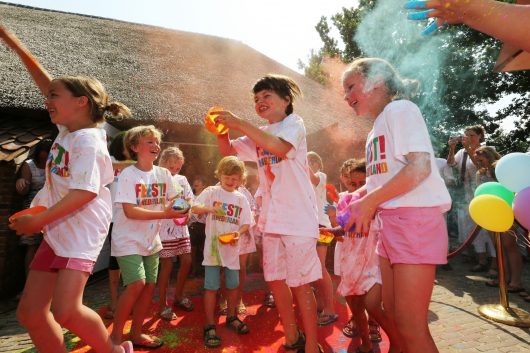
- Schools in the Netherlands give homework sparingly. In the U.S., elementary students are given more than the recommended amount of homework, which is time-consuming. Research has shown that play and exercise are vital to children’s growth and school performance. Dutch students under the age of 10 receive very little, if any, homework , which gives them time for daily exercise.
- Education in the Netherlands is fairly affordable. It is free for primary and secondary schools; parents need to pay for annual tuition only after their child reaches 16 years of age, and low-income families can apply for grants and loans. For university students, the average cost of tuition is about USD$2000 per year; in the U.S. it is close to $10,000.
- There are different types of classes Dutch students can take for secondary school before college. Students can take HAVO (senior general secondary education) or VWO (pre-university education) before they go to college. They can also take VMBO (preparatory secondary vocational education) if they do not want to attend college right away. This system allows students to work with a program that will accommodate their needs.
- Education in the Netherlands involves learning a second language. While American students usually start learning a second language in middle school or high school, some primary schools in the Netherlands teach English as early as Group 1, which is the equivalent of American kindergarten. All Dutch students learn English, but some schools require students to learn an additional language. There are even bilingual schools for every education level, where some classes are taught in English and others are taught in Dutch.
- The Dutch school week is different from an American school week. A school day in primary school usually takes place from 8:30 a.m.-3:00 p.m. on weekdays, but students go home for lunch instead of eating at a school cafeteria. On Wednesdays, schools dismiss students around noon.
The Netherlands puts its youth first when it comes to education. Young people demonstrably succeed in math and sciences while having a low unemployment rate. This, along with much more successes, places education in the Netherlands at the top compared to other countries. Other countries could learn from the Netherlands in how they put education first for their youth.
– Emma Majewski
Photo: Flickr
“The Borgen Project is an incredible nonprofit organization that is addressing poverty and hunger and working towards ending them.”
-The Huffington Post
Inside the borgen project.
- Board of Directors
Get Smarter
- Global Poverty 101
- Global Poverty… The Good News
- Global Poverty & U.S. Jobs
- Global Poverty and National Security
- Innovative Solutions to Poverty
- Global Poverty & Aid FAQ’s
Ways to Help
- Call Congress
- Email Congress
- 30 Ways to Help
- Volunteer Ops
- Internships
- The Podcast
- Dual careers
- Volunteering
- ACCESS Features
- ACCESS Magazine
- Counselling
- Childbirth Courses
- First Aid Courses
- Testimonials
- Disclaimer and privacy policy
- Thank you for registering for the Eindhoven Childbirth Course
- ACCESS Partners
- ACCESS Counsellors
- ACCESS Trainers
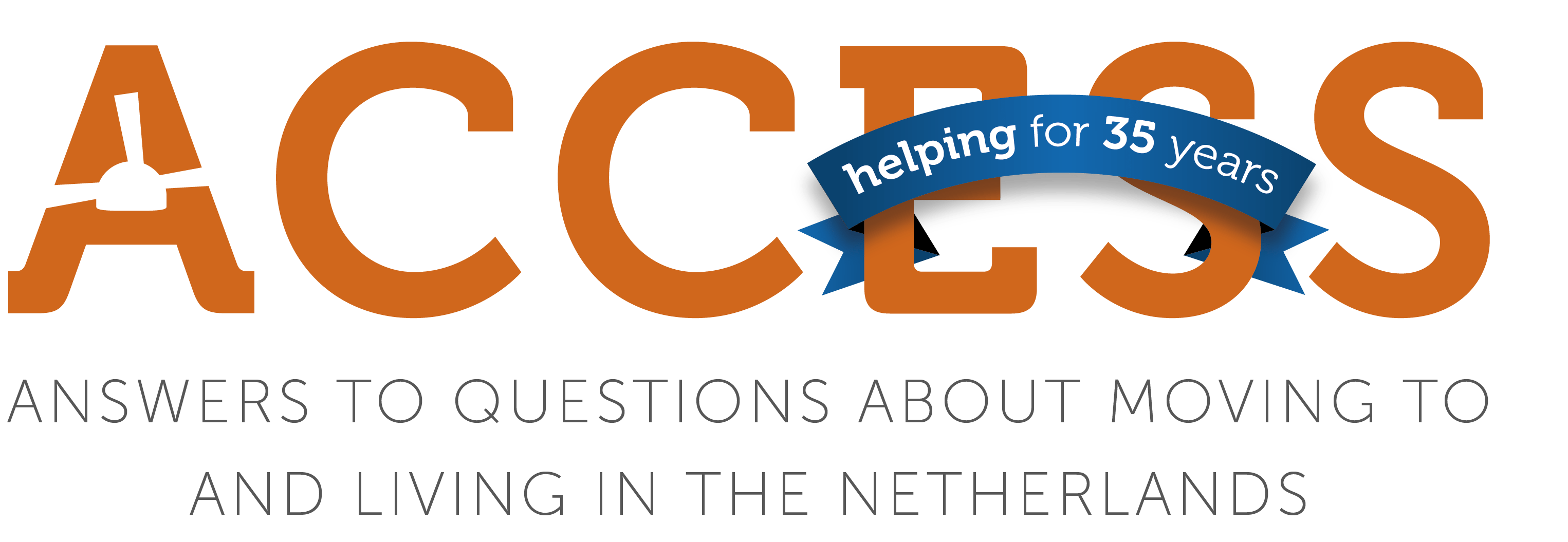
Helpdesk + 31(0)85 4000 338 [email protected]
Visit us in:
The Hague - Amsterdam
Amstelveen - Utrecht
ACCESS NL > Education in the Netherlands > Dutch school system > Primary and secondary education > I am moving to the Netherlands soon. I am considering home schooling for my children. Is this allowed in the Netherlands?
Primary and secondary education
I am planning to stay here for a long time. Should I send my children to a Dutch or an international school?
If you are planning to stay here for a long time, a Dutch school could be an option, depending on the age of your children. If your children have previously attended a school in another country and are used to lessons in English, or if you anticipate that your children will return to another country’s educational system in the future, it might be in the best interests of your children to go to a Dutch international school (subsidised by the Dutch government) or an international school here in the Netherlands.
However, if your child is at the beginning of primary school, a Dutch school might be an option. Some of them offer special courses to learn Dutch for newly-arrived foreign children ages 6-11 at the opvangscholen (reception schools). These are ordinary basisscholen (primary schools) with a special class for learning Dutch: the reception group. Every week they are taught to speak, comprehend, read and write Dutch by someone who is experienced in teaching foreign children. When children are not attending lessons in the special reception group, they attend regular classes at the school for subjects such as math, history, science, arts and crafts, etc. You can find such a primary school on https://www.lowan.nl/po/scholen/ (Dutch only). Keep in mind that if you are looking for a school in The Hague to search for “Den Haag” (in Dutch).
Children from 12 years of age are usually required to attend Internationale Schakelklas – ISK (bridging schools). Children will usually be assessed for their linguistic skills in the Dutch language before they are allowed to enrol in an ISK school. Depending on their age and ability in mastering the Dutch language, children will typically spend between 1.5 to 2 years attending an ISK school before transferring to the mainstream Dutch educational system. You can find such a secondary school on https://www.lowan.nl/vo/scholen/ (Dutch only). Keep in mind that if you are looking for a school in The Hague to search for “Den Haag” (in Dutch).
The following website https://utesinternationallounge.com/dutch-education-explained-by-genoveva-geppaart/ provides you with an overview of Dutch education.
I have a 14 year old daughter who is coming to live with me in the Netherlands. She does not speak any Dutch. Therefore, can you recommend a Dutch state school where my daughter can learn the language as well as being taught the normal academic subjects?
From 12 years of age, Dutch children normally choose from more vocationally-based training to pre-university diplomas depending on their academic ability. The lessons are given in Dutch.
After registering with the municipality in which they live, those children who meet the following criteria are usually required to attend ‘bridging’ schools known as Internationale Schakelklas – ISK:
- Have lived in the Netherlands for less than two years
- Need tuition to become competent in speaking the Dutch language
- Are between the ages of 12 and 18
Children will be assessed for their linguistic skills in the Dutch language before they are allowed to enrol in an ISK school. There are ISK schools located throughout the Netherlands. There is no list of ISK’s . Best is to check with your municipality.
The ISK schools prepare pupils for intake into secondary education or vocational education, depending on the age of the students. These schools teach children as much Dutch as possible, so that the children can learn to the same level of academic ability in the Netherlands as they would in their home country. At the ISK schools the teenage children will be given dedicated lessons to learn Dutch for approximately 16 to 20 hours per week.
In addition to the teaching of other academic subjects such as mathematics, geography, history and economics, art and culture, the ISK schools also provide additional support for the students. This support is often in the form of a dedicated mentor and access to other specialised services, for example a speech therapist for those children who experience difficulty in pronunciation of the Dutch language.
Depending on their age and ability in mastering the Dutch language, children will typically spend between 0.5 to 3 years attending an ISK school before transferring to the mainstream Dutch educational system.
Do all international schools teach in English?
In general, most international schools teach in English, but there are also schools that teach children in their native language, e.g. the German, French, Indonesian, Japanese and Korean schools.
What are the principle aims of Dutch primary school education and what subjects will my child be taught?
The Dutch government has set kerndoelen (attainment targets) which define what children are expected to have acquired in the way of knowledge, understanding and skills by the end of primary school. Whilst these attainment targets describe in general terms the skills and knowledge a child must have acquired, the referentieniveaus (benchmark levels) for mathematics and language specifically prescribe the degree of proficiency that a child must attain in any given year of schooling.
The core curriculum for all basisscholen (primary schools) must include the following subjects:
- English (from group 7 on- 10/11 years years old)
- Arithmetic and mathematics
- Social and environmental studies (including, for instance, geography, history, science – including biology, citizenship, social and life skills – including road safety, healthy living, social structures – including political studies, and religious and ideological movements)
- Creative expression (including, for instance, music, drawing and handicrafts)
- Sports and movement.
Schools are free to offer other subjects such as French, German or religious studies, but these subjects are not required by law.
I want to raise my children bilingually. Are there any Dutch schools that teach (partly) in English?
There are an increasing number of schools providing bilingual lessons. Most of them are secondary schools. In the Netherlands, Tweetalig Onderwijs – TTO (bilingual education) came into existence in 1989. In most cases, TTO refers to bilingual (mostly English-Dutch) and V oorbereidend Wetenschappelijk Onderwijs – VWO, where this is the pre-university stream in Dutch secondary education.
In the TTO schools, a wide variety of subjects such as history, geography, math, physics, biology, chemistry, economics, IT, arts and music are taught in English. Bilingual lessons are taught over the preceding six years leading up to university entrance. Whilst in the last three years, students will focus upon the academic subjects that they will be examined on (in Dutch), some of the lessons will still be provided in English. Bilingual students also have the opportunity to sit the internationally recognised International Baccalaureate (IB) English Certificate. A successful result qualifies these students to enrol at English-speaking universities.
The aim of bilingual education is to prepare students for an increasingly global environment. Hence, whilst foreign language skills are important, the lessons are taught in a broad, internationally oriented context.
It should be noted that the Dutch bilingual school system has been set up with the emphasis upon native speaking Dutch children becoming competent in speaking English as their second language rather than vice versa.
What are the options for my child’s secondary and higher education options in Dutch schools and universities?
During the final year of primary school (normally in April/May), Dutch children take a mandatory test. The aim of this test is to assess the extent to which a child has progressed in his or her proficiency of the Dutch language and in mathematics. The results of the test, together with the teacher’s assessment over the preceding years, will determine which type of secondary education would be most appropriate for the pupil. The secondary and higher education options are:
- VMBO: practical secondary education
- HAVO: senior general secondary education (entrance to HBO – university of applied science)
- VWO: university preparatory education (entrance to hbo – university of applied science or wo – research university)
VMBO (preparatory secondary vocational education)
The VMBO ( voorbereidend middelbaar beroepsonderwijs ) prepares its students for a more vocationally based secondary education at a MBO ( middelbaar beroepsonderwijs ) senior school or, in some cases, a more general secondary education at a HAVO ( hoger algemeen voortgezet onderwijs ) senior school. A pupil will spend four years in VMBO education and whilst in their second year choose their preferred vocational direction. At the MBO they will be taught subjects that will prepare them for various occupations ranging from shop manager to mechanic or nursing assistant. Pupils who successfully complete the theoretical, combined or middle-management vocational programme at the VMBO level can enrol in professional and middle-management training. Holders of a middle-management MBO certificate may go on to study at the HBO level (higher professional education).
HAVO (senior general secondary education)
A HAVO ( hoger algemeen voortgezet onderwijs ) education takes five years and prepares students for a professional education ( hoger beroepsonderwijs – HBO).
VWO (pre-university education)
A VWO ( voorbereidend wetenschappelijk onderwijs ) education takes six years and prepares students for a research university education . In the first two years, students follow a common curriculum. All students at a VWO school must study three languages (French, German and English) up to the end of their third year. At the end of the third year, the students choose an academic ‘profile’ package, which includes both compulsory and optional subjects.
Find more information about foreign education systems and international baccalaureate as well as overviews of foreign diplomas in comparison with Dutch diplomas on: www.nuffic.nl .
In the Netherlands, all children aged 5-18 are required to attend school. Hence, ‘home schooling’ is not allowed. There are, however, a few situations in which an exception can be made. If you have objections to the view of life (e.g. religion) of every school in your area, you need to give a declaration to your municipality about this. You can contact your municipality for more information about the content of the declaration.
If your child is physically and/or mentally unable to attend school, you need permission for home schooling from your municipality.
Nederlandse Vereniging voor Thuisonderwijs – NVvTO is the Netherlands home schooling association. It is an organisation of parents (and other adults who function as such) who wish to home school their children whilst in the Netherlands and have done so in the past, or plan to do so in the future. More information regarding this can be found on Thuisonderwijs.nl/english.
Who is the leerplichtambtenaar and why did I get a letter from this person?
The leerplichtambtenaar is an official in charge of checking that the rules regarding leerplichtwet (compulsory educational law) are followed.
According to Dutch law, schools are responsible for monitoring and controlling all absences of their children from school. They are legally required to inform the leerplichtambtenaar (official in charge) when any child misses more than sixteen hours of school over a period of four weeks. The school may also inform the leerplichtambtenaar if a child has been late twelve times for school.
Once the leerplichtambtenaar has received such information from the school, he/she will contact the parents to determine what action may be taken.
Only in a few specific circumstances can schools grant permission for children to miss school during the school year. Schools may grant permission for a child to be absent from school for events such as weddings, funerals, religious holidays and moving house. For every other absence, it is compulsory for the parent to ask for permission from the head of school in advance.
School attendance records are regularly inspected by a leerplichtambtenaar , who tends to also check for pupil absentees right at the beginning or end of the school term, as they are regarded as very suspicious periods.
How does the Dutch school system work?
Dutch education is , like in many other countries, divided into primary education, secondary education and tertiary education.
Primary education
In the Netherlands, primary school starts with kindergarten at age four. From age five it is compulsory to attend school fulltime. There are hardly any private schools in the Netherlands. Schools can have a certain religious orientation such as Protestant, Catholic, Islamic, Hindu, any other religion or no religion at all. In addition, schools can follow a certain educational philosophy such as Montessori, Jenaplan, Dalton or Vrije School (internationally also known as Waldorf). Children with special educational needs will find offerings more frequently in primary than in secondary schools.
Secondary education
There are four options for secondary school:
- Practical education ( praktijkonderwijs)
- Preparatory secondary vocational education (voo rbereidend middelbaar beroepsonderwijs , VMBO)
- Senior general secondary education ( hoger algemeen vormend onderwijs , HAVO)
- Pre-university education ( voorbereidend wetenschappelijk onderwijs , VWO)
Tertiary education
After secondary school there are several options:
- Medium level professional education ( middelbaar beroepsonderwijs , MBO) for those who have finished VMBO. Like VMBO this has four levels.
- University of Applied Science ( hoger beroepsonderwijs , HBO) for those who have finished HAVO (or MBO at the highest level)
- Research University ( universiteit ) for those who have finished VWO ( or first year -called propedeuse – at HBO)
You can read more about how the Dutch education system works on the site of Ute Limacher-Riebold
My daughter is in group 8 of a Dutch primary school. She is capable of the HAVO or VWO track in secondary school, but her Dutch is insufficient for this level. What options are available?
If your child is capable of HAVO or VWO but her Dutch level is insufficient, a kopklas can be the solution.This year following group 8 focuses on improving children’s Dutch and enabling them to attend the most appropriate secondary school. Choosing this class requires high motivation by both parents and child, and it is best to discuss this option with your child’s teacher.
Special needs education
View the FAQ’s
After-school activities for kids
Related Partners
Nord Anglia International School (NAISR)
Rotterdam International Secondary School (RISS)
2Samen Childcare
British School of Amsterdam
Zein International Childcare
The International School of Amsterdam

- NETHERLANDS
- SWITZERLAND
Education Articles


Dutch schools: What to expect when you go “local”
Young Expat Services (YES) are educational specialists, helping families relocate to the Netherlands. YES can help you with finding the right school for your child(ren), whether it's a local school or an international school.
You’ve decided that your children will attend a Dutch school. Often, parents make this decision because they want to stay in the Netherlands for longer period of time and integrate into Dutch society. We can imagine it’s a bit scary to put your child in a school without you or them having any knowledge of the Dutch language.
We can also imagine you have loads of questions about this process like: What will happen that first period? Are we able to help them with their homework? How will they learn Dutch? In this article, we will tell you more about the process of “going local”.
But first, why do nearly half of all internationals in the Netherlands choose local education? Well…
- There’s a greater selection of schools to choose from
- They allow your child to integrate more easily into the local Dutch community
- According to the OECD, Dutch education is of high quality
- Dutch schools receive state funding, making them more affordable (schools typically only ask for a parental contribution)
The importance of being fluent in your first language
Mother tongue development is the foundation for further language acquisition. Knowing and fully understanding a first language is essential for transferring and applying knowledge and understanding to a second and third language. The best thing you, as a parent, can do is to expose your child to your native language as much as possible. For example, read your child a bedtime story in your first language.
2-4 years old: Preschool
If your child attends a preschool, he / she will be exposed to Dutch two to four times a week. This depends on the city you live in; all cities have their own policies. Preschools work with special language programmes. These programmes are usually based on themes. Different themes offer a different vocabulary. Children will sing songs, make arts and crafts and other activities around this theme.
In the bigger cities, most preschools have a lot of experience with children whose mother tongue is not Dutch. For children who were born in the Netherlands but do not speak Dutch, this will be the first official moment where they are exposed to Dutch. Research has shown that Dutch preschool is effective in developing the Dutch language skills of a child.
4-6 years old: Local Dutch school
Generally, at this age international children can be enrolled in a local Dutch school even though they don’t speak any Dutch. Children aged four to six learn by playing. In school, they will be immersed by Dutch five days a week. Just imagine how much you will learn if you’re exposed to Dutch five days a week.
On average, your child learns around 15 new words per week. In the beginning, he / she will only listen. This is called the silent period. It depends on a child’s character as to how long this period will last. For some children, this silent period can last longer than other children, you might worry that your child will never speak Dutch, and suddenly, almost full Dutch sentences are spoken! The advice of Young Expat Services (YES) : give your child some time and trust that it will all work out.
There are also children who mix up their mother tongue with their Dutch. Don’t worry, after some time they will know how to distinguish between Dutch and their first language.
6-12 years old: Dutch immersion classes / Newcomer’s classes
Newcomer’s classes are available at many schools in the Netherlands, specialising in education for six to 12 year olds who have just arrived in the country and do not yet speak Dutch. Newcomer’s classes can be either a separate school or a class within a school.
Newcomer's enrolment procedure
Pupils can be enrolled at any time of the year. Contact the school to make an appointment. In some regions, children can attend a newcomer’s class from the age of four but most cities enrol from the age of six.
Children spend approximately one year in the newcomer’s class. After this, they join their local Dutch school, usually attending the same class as other children of their age. Some newcomer’s classes request that you apply to a local Dutch school first, as this will be your future Dutch school. Policies can vary per city. Please check the policies for your region.
Dutch immersion classes
In most cities, there is only one language school. This might mean that the school is located far away from your house. In small villages, Dutch immersion classes are not available.
In a language school, your child is amongst children from all over the world. The children have different backgrounds, and there is a difference in educational development. Children will follow an individual programme. These classes usually have around 15 children per class. The focus is on learning Dutch but also maths, gymnastics, art and music are taught.
The goal of these language schools is not to become fluent, but to understand enough Dutch to participate in class. Older children need to learn a wider vocabulary. Usually after one year of immersion class, younger children will attend the same class as their age group. Older children might have to retake a year.
A Dutch six-year-old child knows about 3.000 words. Every year, at least 2.000 are added to this. So, you can imagine it takes more time for an older child to participate in lessons and grasp the topic at hand.
In a Dutch school, homework is not common. From the age of 11, around one hour of homework per week can be expected. The child is capable of doing their homework by themselves. If they need help, you can always ask a Dutch teenager to help your child with their homework, for example with the reading.
12-18 years: Secondary language classes
From the age of 12, children who are new to the Netherlands and don’t speak any Dutch are placed in a secondary language class (Internationale Schakelklas, ISK). After enrolment, the child will be tested by the school so that they can be taught at an appropriate level. Students stay in an ISK class for approximately one to two years. On average the children retake a year (or two years for older children).
Enrolment procedure
Pupils can be enrolled at any time of the year. Contact the school to make an appointment. The student must also be present for enrolment. Based on age, history of schooling and capacity, an individual plan will be developed.
Video: School system in the Netherlands
For a summary of the Dutch school system, watch this video produced by Nuffic, titled “School system in the Netherlands”:
We hope this article has given you a better understanding of the Dutch immersion process. It is a big step, but remember, bilingual children enjoy many advantages.
Succes met het leren van de Nederlandse taal (Good luck with learning Dutch)!
Young Expat Services provides educational consultancy, assistance in finding the right school, Dutch lessons for your children and support with the integration of your family into Dutch society. All YES employees have lived abroad as a child or later with their own families. So they know the "feeling" of leaving your home country and having to adjust to a new culture.
Contact Young Expat Services now
For more information on how Young Expat Services can be of service to you and your family, please fill in this form.
After clicking submit, the information you have given will be shared with the author / business partner in line with our Privacy Policy

Eline Hausel
Owner Young Expat Services at Young Expat Services
JOIN THE CONVERSATION (2)
Leave a comment

Eman Khattab 09:21 | 17 July 2018
Hi, what is the average cost of preschool and daycare? Thanks
Gisele Dantas 15:05 | 23 July 2018
Please. Let the parents know that all the local public schools have more or less the same score, but does not mean they are the same level in education. I choose my 5 yld dauther school blind, and I realise later that how much your kid will be challenged at school can change dramatically from neighbour to neighbour. Talked with other parents, specially if your kid like challenges at school. Because not speak dutch doesn't mean he/she is not good in math, and some times because they are not good in Dutch, some schools think they are bad in everything, and just give then very low education.
Your guide to living, working and studying in the Netherlands
Business directory, the dutch education system.
The Dutch education system is totally different to that of a country like the UK! In the Netherlands, there are several educational paths a child can choose to pursue. What’s more, kids begin to be directed down one of these academic routes very early on in their lives. If you are moving to the Netherlands with children, read on. We will explain how the primary and secondary education systems work here, and how young expats can adapt to them.
Primary Education in the Netherlands
Primary education in NL works as follows:
- In the Netherlands, children attend primary school from the age of four and until they are twelve
- They spend their first two years in kindergarden
- In their final year, pupils are advised on which type of secondary education they should pursue
- This advice is based largely on the ‘ leerlingvolgsystem’
- This is a monitoring system, which is used to register the achievements of pupils throughout their time at elementary school
- An aptitude test is also used to determine which type of school they should move on to. It is often referred to as the ‘ CITO-toets ‘ , in Dutch
Secondary Education in the Netherlands
Secondary school education is where matters begin to get complicated in the Netherlands! This diagram illustrates how it works:
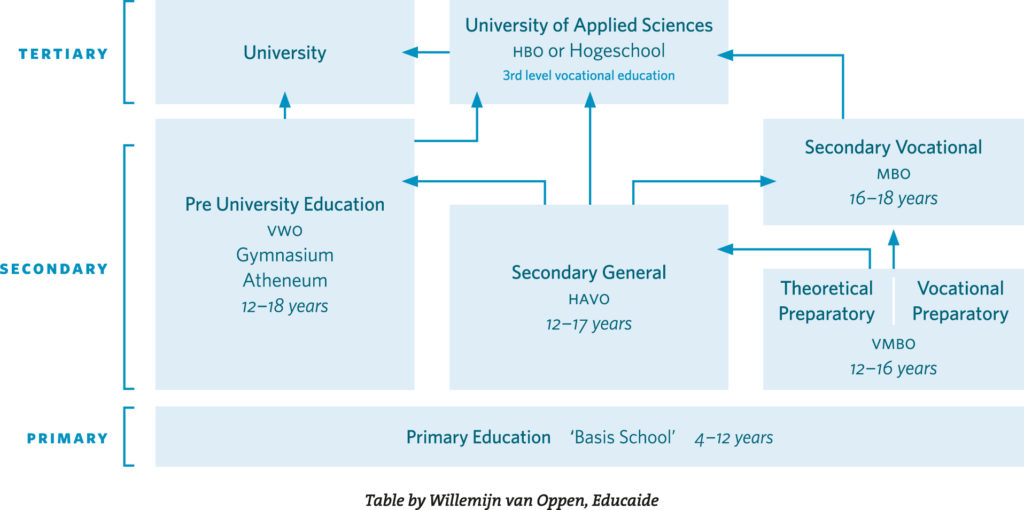
Let’s explain Dutch secondary education, in more detail:
- There are three types of secondary school pupils can choose from, once they have completed their primary school education
- All three start with a sort of ‘basic package’
- Usually, it lasts two years and consists of general subjects that all students follow
- The first year is called the ‘ brugklas ‘ . In English, it is referred to as the ‘transition class’
- At the end of this year a final decision will be made, regarding the type and level of secondary education with which a student will continue
- This gives pupils one year to demonstrate the level at which they are capable of performing, and to think about which kind of schooling they wish to pursue
- In some secondary schools, this decision is made after two years
Educational Acronyms in NL
The different types of education in Holland go by the following acronyms:
- VMBO is ‘Vocational Secondary education’
- It lasts four years
- VMBO caters for students of varying levels and abilities
- Depending on how well they perform at VMBO, a pupil might have the option of going on to attend a ‘HAVO’. You can find an explanation of HAVO education below
- Another option for them is to progress to a ‘Senior Secondary Vocational Education and Training Institution’. This type of institution is called an ‘MBO’ or a ‘ middelbaar beroepsonderwijs ‘, in the Netherlands
The other two forms of secondary education grant their pupils admission to higher education :
- HAVO lasts five years
- Pupils are enrolled according to their ability
- HAVO-diplomas prepare students for admission to a university of applied sciences. These are known as ‘ HBOs ‘ in the Netherlands
- VWO lasts six years
- VWO is considered to be a more rigorous educational path than HAVO
- The curriculum prepares pupils for a ‘ WO ‘ university
Many secondary schools offer a mixed transition class. They might, for example, have a VMBO/HAVO or a HAVO/VWO.
Dutch School for Expat Kids
In Dutch schools lessons will be taught, unsurprisingly, in Dutch. Non Dutch-speaking four and five-year-olds usually acclimatize to this pretty easily. Still, just because your child is six years of age or older, it does not mean that he or she cannot be enrolled in a Dutch school .
Unsure about which kind of school is right for your kids? Take a look at our ‘Useful Links’ box at the bottom of this page. It lists several other xpat.nl pages, which offer further advice on this matter. Our article about learning Dutch in the Netherlands might be of interest to you as well!
Dutch Immersion Classes
Many Dutch schools ask that their pupils attend a Dutch immersion class:
- Dutch Immersion classes are called ‘ schakelklas ‘ or ‘ nieuwkomersklas ‘ in the Netherlands
- After approximately one year of attending an immersion class, a child should be able to transition to a regular Dutch school
- When possible, he or she will be enrolled in a class with other children of a similar age
- Some schools have their own, internal newcomer classes. Usually, however, this is only the case at specialized schools
Immersion Classes Post Primary School
There are secondary level Dutch immersion classes too:
- ‘ Internationale schakelklas ‘ is the Dutch phrase used to describe them
- Some cities also offer a ‘ kopklas ‘
- This class is designed for highly-motivated children, who have finished primary school with high grades for math, but much lower ones for the Dutch language
- The Kopklas is intended to help these pupils to follow a higher level of secondary education
- Often, this is against the initial advice of their high school
- If they have reached a high enough academic level after attending kopklas for one year, they will be admitted to a more demanding secondary education program
- International education in the Netherlands
- Special education in the Netherlands
- Schooling for Expat Kids in NL
- International Schools in the Netherlands
- Local or International School in NL?
Find further information through the following organizations:
- Educaide : International Education Solution House
- MBO Raad : Organization of Secondary Vocational Education
- IVETA : International Vocational Education and Training Association
Recently Posted on XPat.nl
- The Difference Between a Resume and a CV
The Holland Handbook 2024
Dutch taxes.
- Dutch 30%-ruling Tax Facility
The UnDutchables 9.0
- This is your checklist for moving to the Netherlands

It is that time of year again; the new and annually-updated version of The ...
> READ MORE
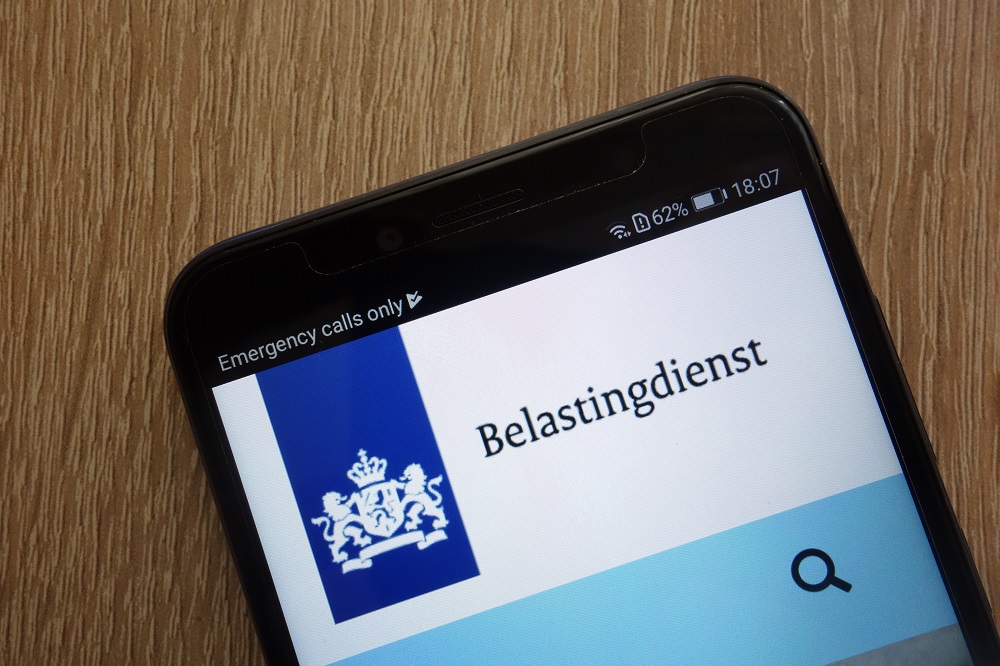
Taxes are always complicated. If you have moved to the Netherlands from another country they ...

Following the legendary previous eight editions of The UnDutchables, the 9th edition of this all ...

Making the most of your Dutch home
Whether you are renting, staying in a long-term AirBNB or have just bought a ...

Gift giving in the Netherlands-all ...
If you feel like skipping your birthday, you may be in for a challenge when ...

10 things you will find in every Du ...
The Dutch are very fond of houseplants, the more the merrier! You will find the ...

Obtaining a Mortgage as an Expat in ...
Obtaining a mortgage as an expat in the Netherlands can be a complex process, as ...

Help me move to the Netherlands!
Obviously, the decision to move to the Netherlands is not one to be taken lightly ...
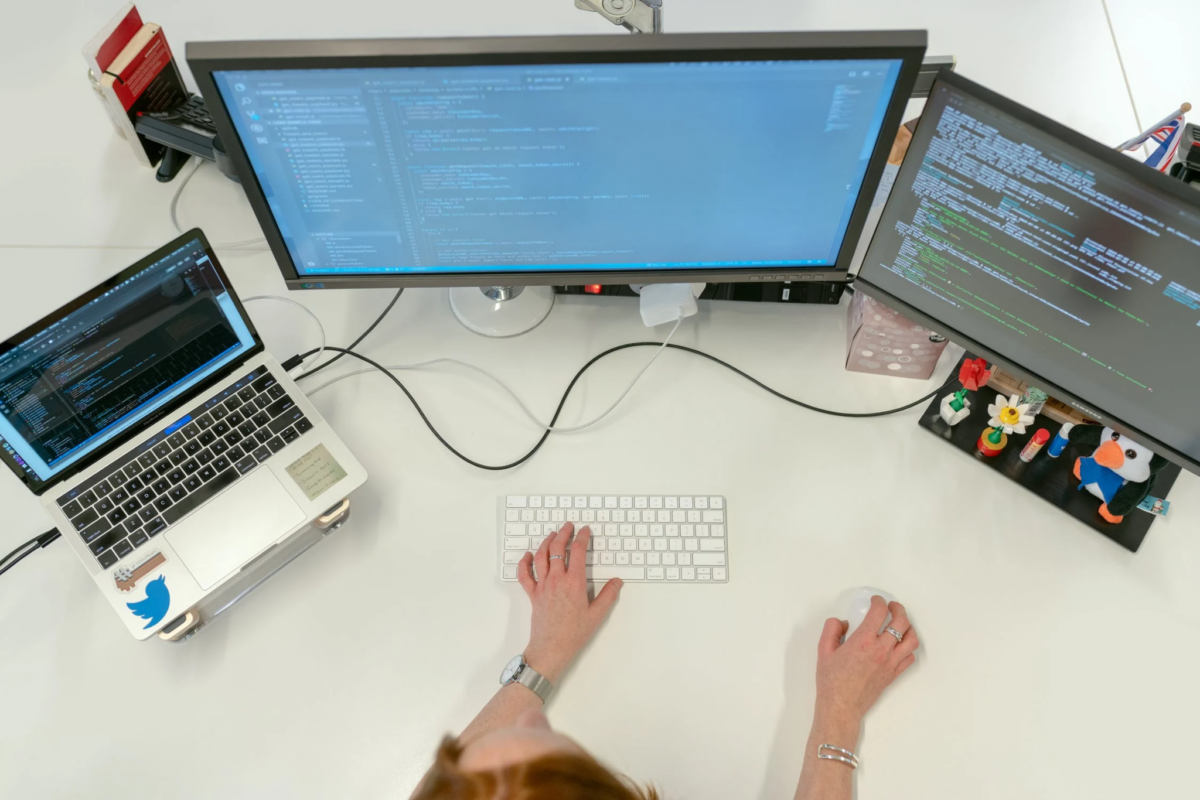
The Impact of Technology on Educati ...
Education is unending and pivotal in society. Technology is one of the most dynamic entities ...
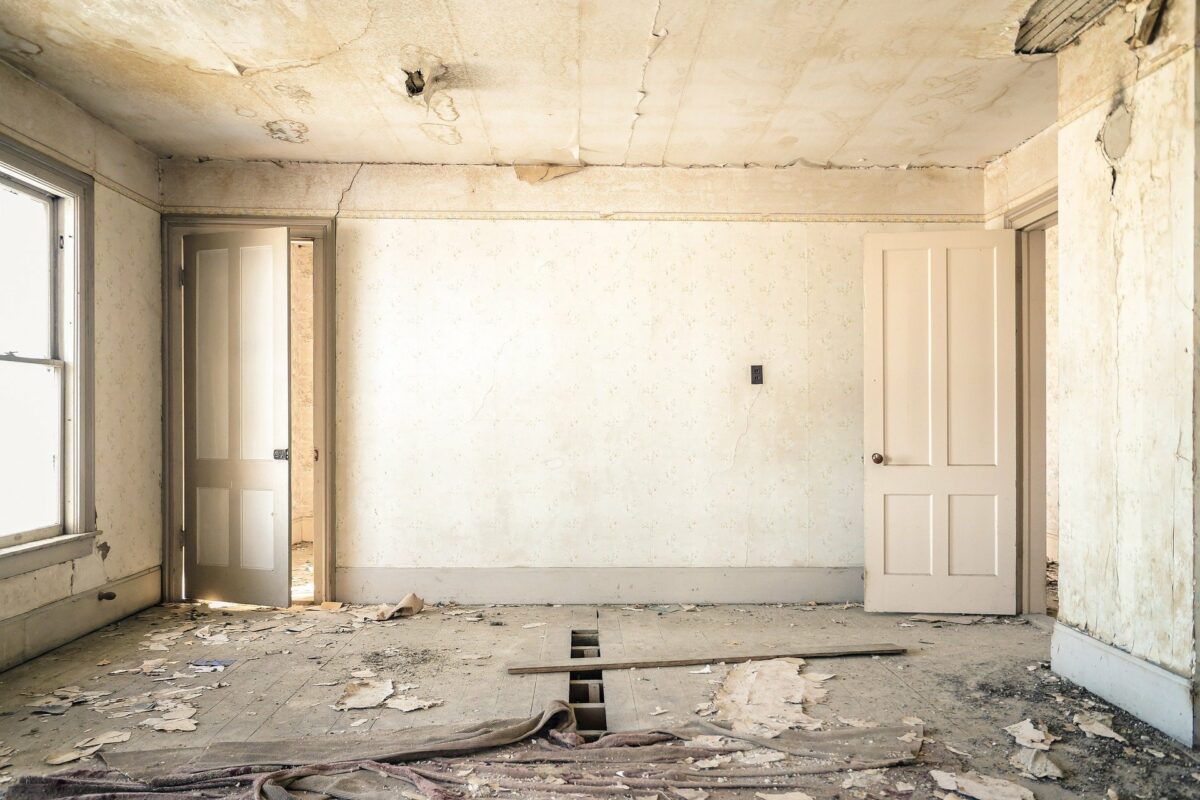
Five Renovation Tips to Increase yo ...
Learn how much home renovations cost – and which repairs increase the home value, and which ...

The education system in the Netherlands
The education system in the Netherlands begins with kindergarten and, by the age of four or five, children have moved to Stage 1 -elementary school- where they will spend the next seven to eight years. Full-time education is compulsory from 5-16, and from 16-18 young people must attend some form of school for at least two days a week.
The education system in the Netherlands is overseen by the Inspectorate of Education which has the power to shut schools or to oblige them to modify their management or curriculum. There are, broadly speaking, three main types of schools:
- Public schools
- Special schools -which are religious rather than focussing on special needs
- General schools – which are not religious, or simply neutral
In addition, there are Islamic schools and a small number of private schools, which include around 150 international schools. There is no automatic moving up a grade at the end of each educational year. Retakes are common, in spite of the fact schools offer additional support and extra teaching to those children who are finding it hard to keep up with their peers.

Education in the Netherlands
Elementary school consists of eight grades, or groups, and at the age of 12 children sit the Cito test, or the School Final Test, to determine where their abilities lie and what kind of secondary school is most suitable for them. Parents and teachers are permitted to have a say in this decision, although parents do not always take advantage of this opportunity. Many educators believe that 12 is far too early to determine a child’s IQ and skills, and the system makes allowances for this, by ensuring there is an uncomplicated process for moving from one secondary school to another. Unfortunately, this does not take into account the fact that a child whose education has focussed on vocational training will inevitably lag behind their classmates when they change schools. Some estimates state that 40 per cent of children are placed in the wrong type of school. Equally, while children may be slow developers and need to go up the system, other children can be moved down if they cannot cope with the type of education they were assigned at the age of 12.
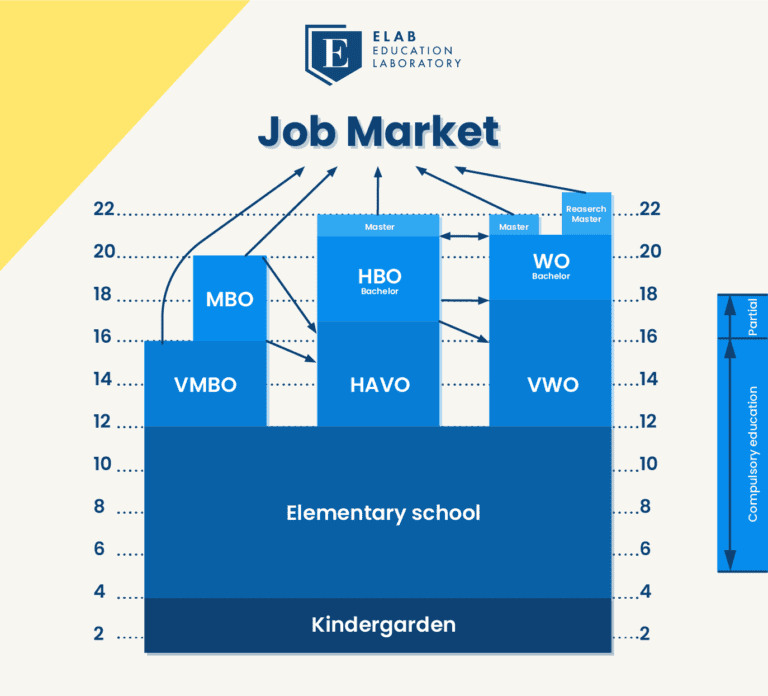
Education system in the Netherlands
Courses are taught In small classes and there is a strong emphasis on team and project work, as well as innovation and creativity.
The education system in the Netherlands – Secondary Schools
There are three types of secondary schools in the Netherlands.
VMBO schools provide pre-vocational education. Sixty per cent of Dutch children will attend a VMBO for four years. These schools teach the arts and sciences, languages, history, and maths, and provide a mixture of vocational and academic training . They have four streams, where the balance between the two types of learning differs:
VMBO-TL – mainly theoretical teaching and learning (academic).The theoretical learning path.
VMBO- GL – this falls halfway between the TL and KBL approach, see below. The mixed learning path.
VMBO-KTL – equal emphasis on theory and vocational practice. The middle-management oriented learning path.
VMBO-BBL – mainly vocational training. The basic, profession-oriented learning path.
HAVO schools are attended for five years and are the gateway to applying to Universities of Applied Sciences. These senior general education schools have five grades and students can apply to transfer to a VWO, which offers pre-university education. The schools follow a core curriculum in the three lower years, and then students can choose between four directions: science and technology; science and health; economics and society; and culture and society. HAVO students also take two subjects linked to the combination they have chosen and sit seven examinations in order to gain their school leaving diploma.
Both HAVO and VWO students have to take a number of compulsory subjects:
- Culture and the Arts
- Social studies.
VWO schools. Students attend their VWO school for six years and the VWO diploma is accepted for entrance to a research university. Certain schools, particularly those close to the border with Germany, teach up to half of their classes in German, while others teach a number of classes in English. Since VWO school programmes last for a year longer than those of HAVO schools, there is a greater emphasis on in-depth knowledge and preparation for studying at university level. After finishing the core curriculum, students choose one of the four subject clusters or profiles (see above) which are taught at a higher level than in HAVO schools.
The VWO is divided into two styles of programme: atheneum and gymnasium. Atheneum programmes include compulsory Latin and Greek . Certain schools also offer the VWO-plus, which teaches philosophy, research methodology and additional foreign languages. This is not an official school level and cannot be found throughout the Netherlands.

Understanding the Dutch Education System
Dutch universities are world-renowned for high quality teaching and research. Many degrees are taught in English and more than 100,000 international students choose to study in Holland every year.
Education in the Netherlands – Higher Education
Mbo- middle-level applied education..
This is the natural route of progression for students who have attended a VMBO and prepares students for a range of skilled trades or to play supporting role in a number of professions, such as nursing, engineering, architecture, criminology, or medicine. The MBO lasts for 1-4 years and runs at four levels:
Level 1 -assistant training, 1 year duration.
Level 2- executive training.2-3 years.
Level 3 – independent working, 3-4 years.
Level 4 -middle management -3-4 years. Students who have finished Level 4 can go on to enrol in an HBO or start working.
There are two types of MBO: apprenticeship training, where over 60 per cent of the course is practical and carried out in a working environment; or school-based education, where training takes up between 30-59 per cent of the curriculum.
HBO-Higher professional education
HBOs are also known as Universities of Applied Sciences.
HBOs are general institutions which specialise in specific fields, from agriculture to performing arts, game design and architecture to life sciences. Courses are taught In small classes and there is a strong emphasis on team and project work, as well as innovation and creativity. Unlike research universities, HBOs prepare their graduates for specific roles within the job market and have strong links with industry . HBOs constantly monitor the job market to ensure their graduates are meeting its needs and learning the skills which are most in demand. The focus is on problem-based learning , and work placements, both at home and studying abroad, are commonly offered as part of your course. Students usually go abroad after the end of the second year. These are not research institutes, unlike their WO counterparts, and teaching is hands-on rather than purely theoretical.
There are more than 40 Universities of Applied Sciences in the Netherlands and graduates are awarded degrees which cite their field of study. For example, if you get a bachelor’s studying nursing , you will have a Bachelor in Nursing, and not a BA or BSc.Courses usually last for four years. Similarly, if you pass your Master’s, which takes between 1-2 years, you will get a Masters in a specific field, e.g.: Master in Social Work, rather than an MA or a MSc. It is not possible to do a doctorate at an HBO.
Applications to universities of applied sciences must be uploaded between March and July. Admissions boards are far more interested in the number of hours you have spent studying a subject than simply a list of actual and predicted grades and will ask you to give a description of the subjects you have taken, and how long you spent on courses related to the field to which you are applying.
Among the most popular universities of Applied Sciences are:
- Hanz, Groningen
- Amsterdam University of Professional Education
- HU, Utrecht
- Avans , Breda/Tilburg/Hertogenbosch (named best University of Applied Sciences in 2021)
- Breda, Venlo/Hertogenbosch
Universities of Applied Sciences are not included in most rankings published abroad, and those which do exist are in Dutch.
WO-Research Universities
You can get your undergraduate degree in three years at a research university, whereas a Master’s takes between 1-2 years. The Netherlands’ research universities are very similar to traditional institutions of learning, found all across the world, with an emphasis on research and independent study. The table, below, provides an overview of recent rankings – but remember that the ranking of your course is just as important as that of the institution. Elab can provide you with detailed analysis of the best universities to apply to in the Netherlands, once you have chosen which degree you wish to study. The choice is wide, since at present there are over 370 undergraduate courses taught in English in the Netherlands, and 1500 at Master’s level.
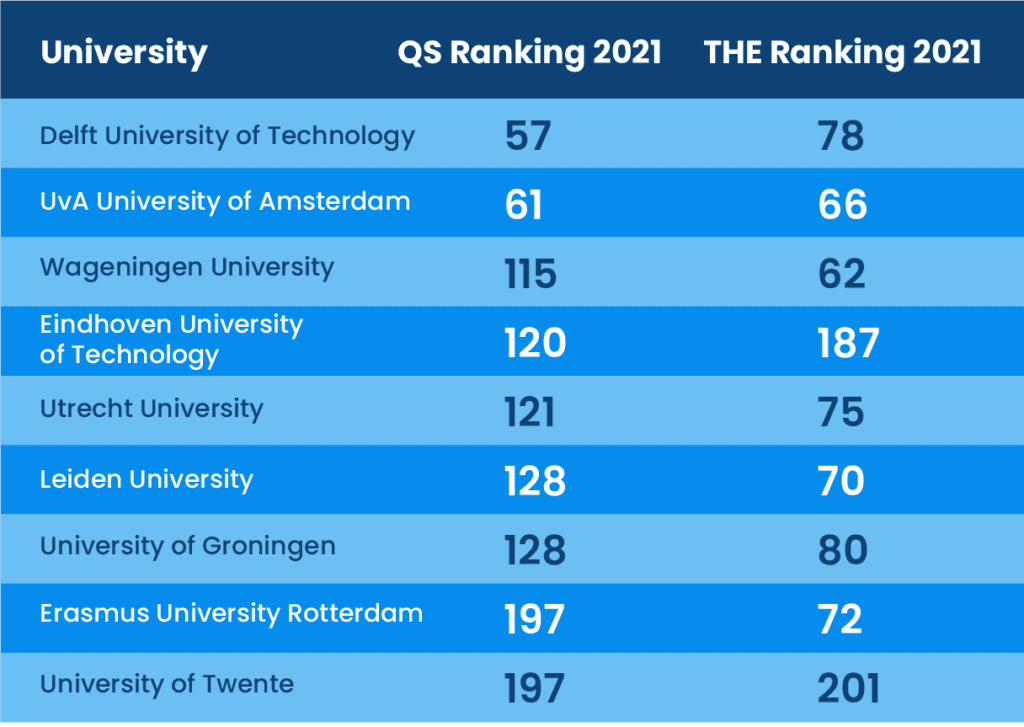
The education system in the Netherlands: Applying to university
The application process is centralised through the Dutch admissions system, Studielink.You will need to provide some, or all, of the following documents:
- Academic transcripts
- Passport or ID
- Up to four photographs
- Proof of English language proficiency (IETS 6+, CAE grade C etc)
- An essay or a personal statement
- Proof of finances – if necessary.
Each applicant is allowed to apply to four courses a year, but only two of these can be “numerus fixus” – limited number courses. If you do wish to be considered for a numerus fixus course, your application has to be submitted by 15 January. You will be given a number and place in a queue , based on the information you have provided, and will go up the list if other applicants drop out or reject the place.
I May is the general deadline, although certain universities are more flexible and accept applications uploaded after this date.
The education system in the Netherlands -Tuition fees and living costs
EU citizens pay the statutory tuition fees, which were approximately 2168 euros in 2021-2022, and are expected to be 2209 in 2022-2023. At present the Dutch central government is offering all first-year undergraduate students a 50 per cent discount on their tuition fees, as a result of the pandemic. Non-EU students pay the institutional fee, which is far higher.

How expensive is it to live in the Netherlands?
An average room in Holland costs somewhere between € 300 and € 600 a month. The costs depend on the city where you study, what is included in the rent and the arrangements made by the institution.
A recent poll of students in the Netherlands broke down their monthly expenses (in euros) as:
- Food 180 euro
- Accommodation 350-800 euro
- Tuition 200 euro
- Insurance 80 euro
- Clothing and entertainment 100 euro
- Books 50 euro
It has been estimated that studying in the Netherlands costs in the region of 1000 euros a month, inclusive of tuition fees – a very reasonable sum. And, of course, you are entitled to apply for a range of financial grants and loans.
Financial help to study in the Netherlands
All EU citizens are entitled to apply for the Collegegeldkrediet , a loan to cover tuition fees , as long as:
- You are under 30 years old
- You have a Dutch bank account
- You have a BNS, a national social security number which you will get once you register your permanent address in the Netherlands. The BNS is essential for all types of administrative tasks, from getting a mobile phone contract to finding work. The process is straightforward
You cannot apply for the loan until you have received a confirmed offer of a place at a Dutch university, and up to 31 January in that academic year.
You can also apply for the Studiefinanciering grant if:
- You work in a registered job. Do not assume this will be easy, since Dutch employers prefer their staff to speak Dutch, so if you have the time and motivation, it would be extremely useful to pick up at least a smattering of Dutch before you leave for the Netherlands. Put your summer break to good use!
- You register for income tax and national insurance – even though you will not pay these, as a student, unless your earnings are very high.
- You work at least 56 hours a month, 12 months a year. This stipulation is often overlooked by students, who assume that they will still be able to have a Christmas break back at home and a six-week summer holiday. This is not the case, if you want to keep on being eligible for the grant.
- You can apply for the grant three months after you have started working, no earlier, since you will have to produce three months’ worth of payslips to submit the application for financial aid.
Application process
Elab will take you through the process of applying for the loan and the grant ,and explain repayment schedules, how much you are likely to be given per month , etc. Call or email Elab for further information or estimates of how much financial help you are likely to be offered .
Click one of our contacts below to chat on WhatsApp
Stai cercando informazioni sulle università all'estero? Hai trovato il posto giusto! 🤓

Secondary Education for the Future – Agora
By Peter Merry and originally published at petermerry.com/blog
Introduction by Jean-Paul Munsch, Guest Editor of EE Magazine’s Education edition:
The parallels between this school’s innovations and organizations “going Teal” are stunning. It’s easy to spot all Teal breakthroughs in consciousness: of evolutionary purpose, wholeness and self-management. Implicit and striking at the same time is the evolutionary purpose of “good for the development of the child.” This seems to be the core of all work that helps students find their way in learning, in life, and in the whole world. Consequently, learning issues are personalized and well-placed in safe space of coached groups.

As I read the interview with one of the co-founders, Sjef Drummen, my eyes filled with tears as I recognised the secondary education of the future that truly honours and liberates the wholeness and potential of our children. The old system is broken and it’s breaking our kids. I was determined to do what I could to bring it to my home town and so earlier this week I visited Sjef and his amazing school. I feel immense gratitude for the vision and courage he and his team have shown in actually manifesting a working example of how it could be done differently. As he repeated a number of times to me, “what we care about is what is good for the development of the child”.
Below is some more information about Agora that I have translated from various Dutch sources, and some photos of the children’s working spaces (that they get to design themselves).
Agora Education in the Dutch media
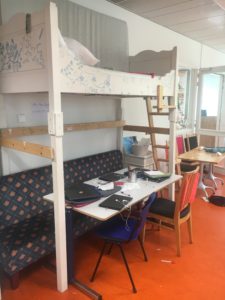
There are no school subjects, no tests, no homework, no textbooks or methods, no classroom instruction. Sjef Drummen, one of the co-founders of the Agora school in Roermond, the Netherlands, says “We work fully personalized. That is, every student has his or her own learning path. You can compare it to the medieval guild system where every master had four students, fellows. Every child learned in a different way. That’s a fantastic system. Because of all the new technology we have today, we can also work that way again. Knowledge is everywhere, inside and outside the school. But everyone has a different pathway to that knowledge. Teachers are there to support students in that quest.
“We invest in the personal development of children in the early years. They must feel safe, free. We teach them to look at the world, to wonder, to develop. Wow! The world is so beautiful! But also: what’s my role in it? The modern world calls for people who are flexible, creative, inventive, people who can make choices themselves, people with a high degree of adaptability. We strive to help children embrace the uncertain future of tomorrow. “
The final state exams still have to be taken for now, even at Agora. “After two or three years of Agora, the children are so motivated that they are willing to learn. We explain it this way: ‘Kids, the system in the Netherlands is so designed so that we have a little challenge to take together. That challenge is the final exam. After that you get a diploma. You have to do silly things for it. But after that you can head out to meet the future.’ “
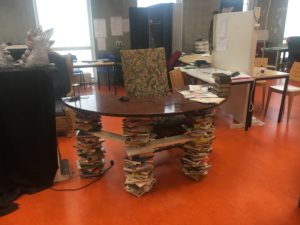
The starting points are clear. Drummen: “First, you need to use your common sense. For example, the fact that boys and girls are different, and learn differently. Secondly, teachers must get space to use their intuition. So the regulations may dictate that the approach has be a certain way. But if you find that this does not fit the child, shouldn’t you do something different? Teachers should always be able to make a choice for the student.
Thirdly, it is essential that teachers know how children learn, how the brain develops. And if you involve science – six university professors have helped us to develop our concept – then you know that qualification test are for example awful for children. Whether it’s level or age. You must not put children in a cage. You’ll see,” Drummen explains with a twinkle in his eye, “If you don’t put children in cages they don’t act like rats. Suddenly it does not seem necessary to keep children under the thumb. Keeping order – what rubbish! The children create their own order.”
Categorising children by their educational level is an abomination to Drummen. “What is that, a ‘havo’ learner? How can you know that at 12, 13 years of age? It is well known that the brain is only mature when children are well into their twenties. Why would you give them that stamp now? I am convinced that every child is able to reach any level. In fact, every child can go to university. Not that they should. Not at all. I am only sure that it is possible theoretically if the educational conditions were good. All children want to grow, want to get better, want to progress. Motivation problems? The Agora students do not suffer from this. There are even students who are disappointed when we reach the weekend or holidays. That’s how much they want to be here. It’s really their place.”
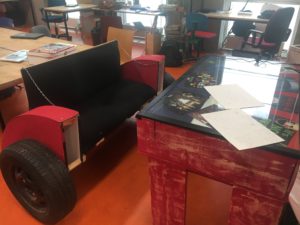
The first seven weeks a student spends in Agora is a “brain bootcamp” where they “de-school” and “un-learn” the children from all the expectations they have of a school. “We are not going to teach you. You are going to learn to teach yourselves”.
The children belong to groups of 15 which are looked after by a coach. The coach’s job is to help the child follow their learning passion, make explicit what they are learning and invite them to complement areas of their development to make it more holistic.
The groups meet at the start of every morning and the discuss an item that is in the news. There is also 30 minutes of silence each day.
All their learning happens through “challenges” which they determine themselves (examples I saw were about how to create a tropical fish tank, to the pyramids of Egypt, to understanding lucid dreaming). The coach documents the competencies they are developing and demonstrating in a rigorous digital platform that parents also have access to.
At the start of their time at Agora they are given a guarantee that they will pass the exam they want to pass in the traditional number of years it would take, or less.
The Agora track has been running for four years within the innovative Niekee school and next year they are going to convert the whole school of 600 to the Agora approach.
For reports in Dutch, including a glowing commendation from Paul Rosenmoller who heads up the Dutch organization of secondary schools, and from the government’s educational inspectors, see http://www.agoraroermond.nl/nieuws-media/ .
Republished by permission of the author.
Featured image/graphic link added by Enlivening Edge Magazine.

Reinventing Startups — the Making of the Book

Why We Need To Empower Teams, Not Individuals

Leadermorphosis Ep. 87 – Kimberly Loh on Compassionate Conversations and Understanding our Patterns in Conflicts

Development, Responsibility, and Next-Stage Evolution in the Educational System: Part 2
Leave a reply cancel reply.
Your email address will not be published. Required fields are marked *
- International
- Politics & Society
- Photo Report
- Relationships
- Learn Dutch
- Attractions
- Restaurants
- Scheveningen
- International Travel
- Bank for Internationals
- Dutch Language School
- International School
- Recruitment Agency
- Relocation Service
- Real Estate Agencies
- Tax Accountant
- Mortgage Advisor
- Psychologist
- DutchReview Team
- Privacy Policy
- Take Down and Notice
- Advertise with DutchReview
- Submit an article
- Editorial Internships
🚀 New feature alert! Find the best businesses for internationals on DutchReview's Business Directory
9 Things you Need to Know about starting Primary School in the Netherlands
Is your little one about to start primary school in the Netherlands? Or as it’s called out here the ‘Basisschool’. If you’ve just moved here with your soon to be 4 year old and are wondering how to navigate the early year’s education system in Holland or are just curious at how primary school compares to the UK then look no further. Here is a list of 9 things you need to know about starting primary school in the Netherlands.
#1 Primary school in the Netherlands: Kids start school the day after they turn 4
This is perhaps the biggest difference to the UK education system. There is no single intake date. As soon as your child turns 4 they are welcome to join Group 1 (the first year of primary school). However it must be noted that school is not verplicht compulsory until the child turns 5. And most schools allow you to be flexible with the school hours if you think that your child is finding it too much. Also holidays from Dutch schools can be taken during term time without issue as they are not legally required to be at school.
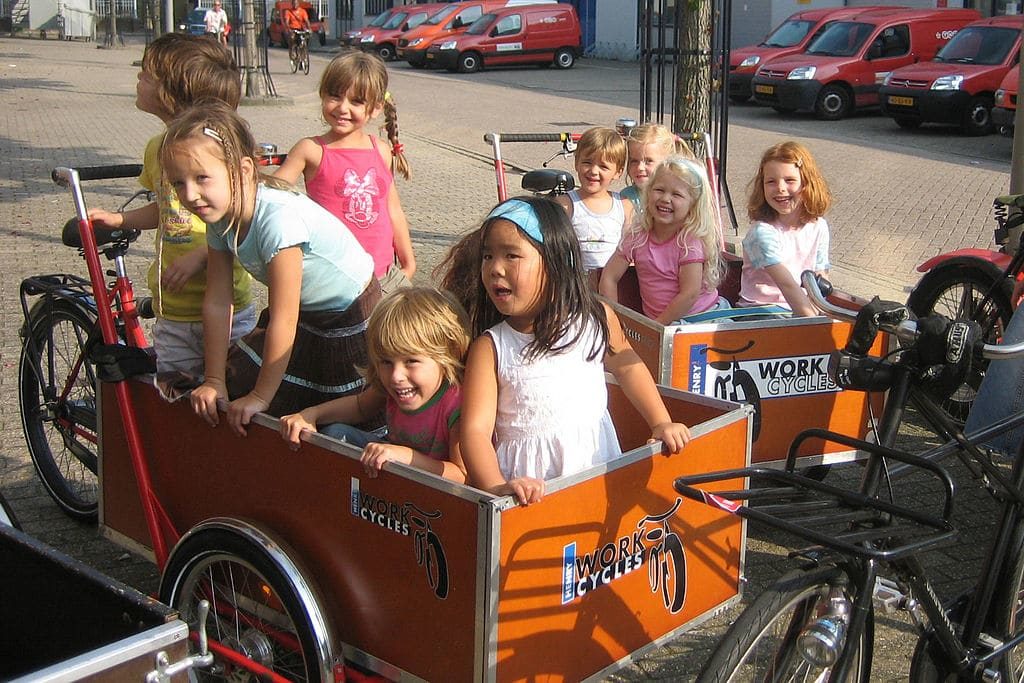
#2 Primary school in Holland: It’s not full time
This was a strange one for me to get my head around. Having experienced primary school myself in the UK where I was expected at school for 9am and was picked up by my parents at 3:15, Monday to Friday. In the Netherlands, most primary schools can pick their own hours which follow a similar pattern. There are 3 full days (Monday, Tuesday, Thursday) and two half days (Wednesday and Friday). Some primary schools, however, extend the half days to three-quarter days as the child progresses up the year groups. So instead of finishing at 12:30, your child would then finish at 2pm.
I actually struggle with this timetable as Wednesday and Fridays just feel like really long days with the boys finishing at 12:30. Having said that though, almost everybody plays a sport outside of school. Therefore the two half-day afternoons are normally taken up with swimming lessons and football/tennis training.
It means that it’s a lot easier to plan a weekend away with the schools finishing so early. It also gives the kids a break, because being in school full time so young must be absolutely exhausting (many adults struggle with a Monday to Friday 9-5 routine and that’s only two hours more than what is expected from a 5-year-old).
#3 Primary school in the Netherlands: They come home for lunch
And if having two half days off a week isn’t enough to recharge the batteries, then coming home every day for lunch certainly will! Yes, you heard that right, the kids come home for lunch – for an hour! We live walking distance to the school so it’s not actually a hardship to walk back and forth 4 times a day. But it does mean that your days at home are actually really short. I actually had to give up ironing as by the time I got the ironing board out and started on the pile I had to be back at school again to pick up the boys (to be honest I’ve never done it but this sounds like a great excuse to use ?).
For the parents that work there is always a TSO, a 3rd party organization that comes into the school and supervises the lunch hour. There is no canteen and so packed lunches are needed. This isn’t free though, ours costs 2.50 euros. I have been known on occasions to ship the kids off with a packed lunch to school just so I can GET SHIT DONE.
#4 Primary school in Holland: There are no lunchbox police
#5 primary school in the netherlands: kids wear mufti everyday.
There is NO school uniform. No last minute rush on the 31st of August looking for a white shirt and trousers that actually fit. No panic washing on Sunday night. No labeling! Just normal clothes. The exact same clothes that my boys wear on the weekend. The biggest downside is the amount of jeans and trainers that we go through. I don’t think my boys own a pair of trousers without a hole in the knee.
When I tell my Dutch friends about school uniforms they find it hilarious. It’s a concept that they just can’t get their heads around, forcing everyone to look the same. I was always brought up to see that as the advantage of uniform, no one would be singled out for wearing the wrong thing. But what I’ve noticed in the Netherlands is that the whole idea of not fitting in isn’t a thing. The Dutch have a saying ‘ Doe maar normaal dan doe je al gek genoeg’ which translates to just be yourself because that’s crazy enough.

#6 Primary school in Holland: The first two years are just play based
Probably very similar to a UK pre-school rather than the first two years of a primary school, Group 1 and Group 2 are just about learning through play. They start to learn the alphabet in Group 2 (equivalent to year 1) but will only learn about half of the letters. The ‘real’ learning begins in Group 3, in which they will finish learning the alphabet and then start to put together letters into words.
The most important part of the early years education is social development. When you get the school report at the end of the year there is a whole page on the social and emotional development of your child (the report itself is 2 pages so you can see how important this is!).

#7 Primary school in the Netherlands: Repeating a year is NOT a big deal
I don’t ever seem to remember anybody at my primary school in the Netherlands repeating a year, nor being moved up for that matter. If a child was struggling then they received extra work. And if a child was doing really well, then they also received extra work.
In Holland, it works a little differently. If your child is finding the work a bit too challenging or isn’t quite ready to sit still and concentrate for a period of time, then it will be suggested that he or she blijft zitten- stays sitting. Not repeating the year, or being moved down a year group. Just stays where they are for another year. And because of the way the Dutch intake work there is normally a variety of ages in one year group, meaning that the groups are based on ability rather than age. Every year since my boys have started school, they have had two or three classmates who ‘stayed sitting’ and have had a few new ones that have joined. And it’s absolutely not a big deal. It’s actually a relief. Knowing that your child is at a level where they no longer have to struggle means that their confidence rockets. Definitely an advantage of the Dutch school system.
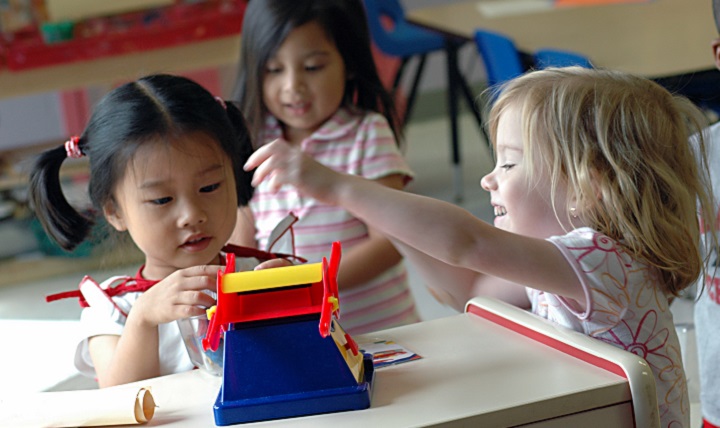
#8 Primary school in Holland: Kids cycle to and from school alone!
Ok, so it’s not expected that your 4 years old will cycle to and from school all by themselves. But from about Group 5 (year 4) it’s not unusual to see kids arriving at school on their bikes unaccompanied. They park them up in the designated bike racks, lock them and deposit the key in a special tub in the classroom.
All Dutch kids receive bike lessons at school from about 6 years old and more importantly they learn the rules of the road.
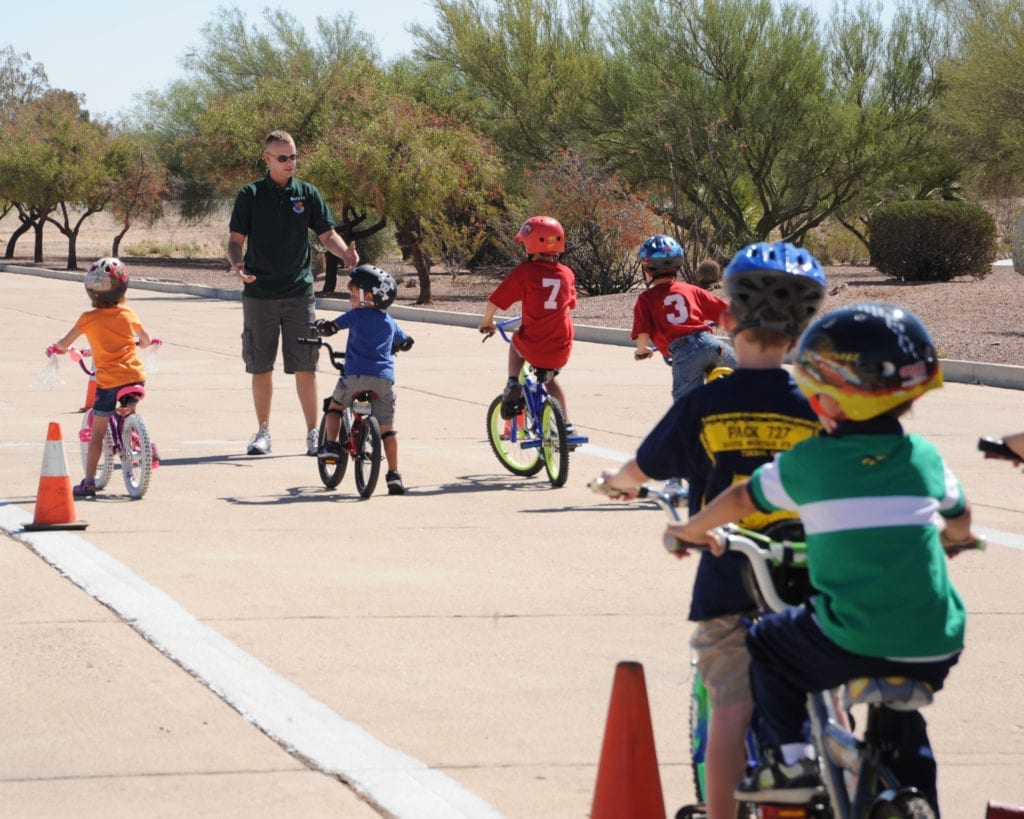
Because of all the designated cycle paths, biking to school is incredibly safe. So safe in fact almost no one wears a helmet. I can hear your gasps now but cycling to Dutch people is just like walking to us. In fact, from about 9 years old Dutch kids go to school trips on their bikes, cycling as a whole class, with fluorescent yellow vests but no head protection!
My daughter, who was born in the Netherlands, learned to walk at 1 and ride a bike without stabilizers at 2 so I can see where the confidence comes from. Kids are cycling almost as long as they have been walking.
#9 Primary school in the Netherlands: There is NO homework
Perhaps my most favorite thing about Dutch education is the kids having no homework. When we first moved here I remember chatting with the headteacher about my son starting. When I asked how much homework to expect she looked at me with a shocked expression and said “Homework?! There’s no homework, when he gets home from school we expect him to go out and play!”
There is not even any compulsory reading!! Of course, I still read to my kids every night but the fact that we don’t HAVE to makes it feel a lot less like a chore.
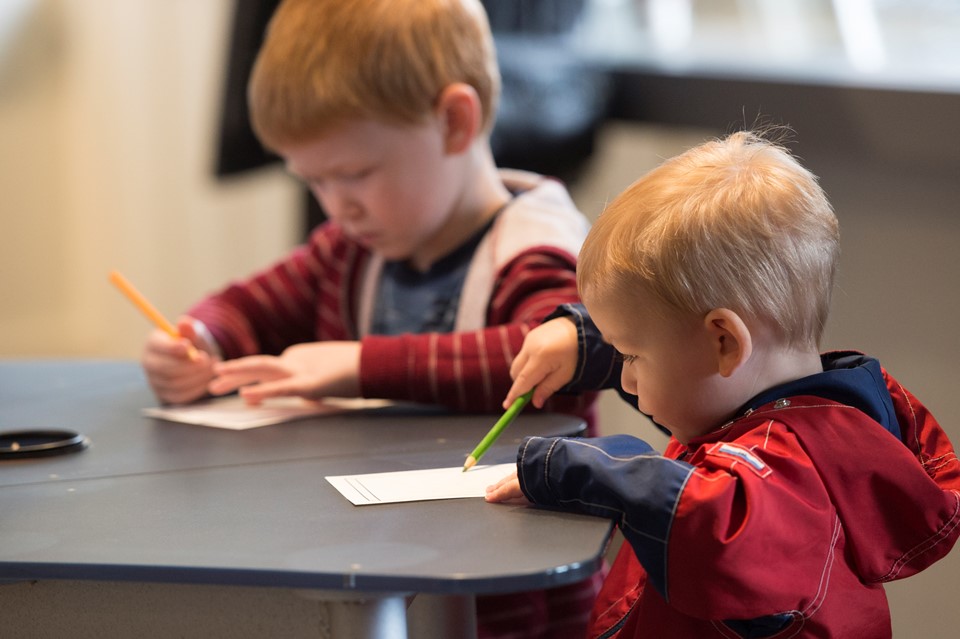
My son is now in Group 5 (Year 4) and the most ‘homework’ we have had throughout his time at school, has been to prepare a book report. Though I have heard the rumors that we may be expecting proper homework this year but so far nothing!
This “no homework” policy gives kids unbelievable freedom when they get home from school. They can go straight out to play (no need to get changed as they’re in school uniform remember) and just be kids. No responsibility, no deadlines, no worrying that because mummy isn’t so good at maths they won’t be able to complete their work!!
They are children for such a short period of time and the Dutch seem to have realized that and are happy just to let kids be kids for that little bit longer, a sentiment I wholeheartedly agree with.
So these are the 9 things you need to know about starting primary school in the Netherlands. Is there anything we missed out on? Let us know in the comments below!

The Gif of the boy abusing the other kid on the soccer field is truly triggering since bullying is a real problem in Dutch schools! Also, don’t expect them to do much about it but instead call it “directness” even if your child is being tortured daily!
Oh gosh that’s terrifying to hear about the bullying. What options did you feel you had? Any meetings with administrators? Switch schools?
okay… my english is not so very good, but I can try it! you may know, on my Dutch primary school I learned Dutch in the second class (groep 2) now I’m in the first class of secundary school. its really fun! but I can say: on my school in the Netherlands, nobody go to home on lunchtime! why? there are pupils, they go by schoolbus and live 30 kilometres from school. I was one of them. and it costs nothing! I wanted to clarify that. thanks for reading!
Beautifull written and correct. And for reacting on the bullying, yes bullying is there but any school with or without uniform has this. The school and sportclubs have policies for bullying and there are special cursus schools can give in classes and for the special kid who is being bullyed. Like ‘Rots en water training”. And Judo or other specifiek sports can give the child tools, so that support ables the kid to react on the bullyers and defend him self, better now then when your older.
LEAVE A REPLY Cancel reply
Save my name, email, and website in this browser for the next time I comment.
This site uses Akismet to reduce spam. Learn how your comment data is processed .
Related posts
7 things to know about having a child in the netherlands, latest posts, schiphol wants to ban night flights; here’s how it will affect you, geert wilders has given up the nl prime minister position — but why, it's happening, upcoming events, is it alive this unique art exhibition is opening its doors, ‘in brilliant light’: marvel at contemporary african art at this exciting new exhibit, trick your brain into speaking dutch with talencoach’s brainwash method, cherry blossom season, daylight savings time begins, explore one of the netherlands’ top international schools during this virtual open day, do you have what it takes to be an entrepreneur show your skills for a chance to win a €10,000 scholarship, considering a bsc in business administration check out nyenrode university’s amsterdam open day, want to elevate your career check out nyenrode university’s open day for a masters in management, king’s day (koningsdag), the latest dutch news. in your inbox., woah, you look pretty good here.
We're constantly hunting for the latest, greatest, and most Dutch spots for our readers. Want your business to reach an unrivalled expat and international audience?
We like you - a lot
© 2023 All Rights Reserved. All material on this website (DutchReview) is strictly copyright and all rights reserved. If you are dissatisfied with the website or any content or materials on it, your sole exclusive remedy is to discontinue your use of the website. The website may provide links to other websites on the Internet, the content of which is not in our control. Whilst every effort has been made to ensure accuracy, the publisher cannot accept responsibility for omissions and errors. If you have found material on this website which is copyrighted by others, please contact the webmaster on this matter in order to have it removed.

Young Expat Services
Young Expat Services (YES) is specialized in helping families relocate to the Netherlands.
- 30 minute call
- School advisory report
- School packages & prices (age 0-18)
- School packages & prices (age 18+)
- How it works
- Returning to The Netherlands
- Presentations
- In school Dutch lessons
- Testimonials

Homework in Netherlands | Primary schools
Dutch school Homework: What parents need to know 🇳🇱
Are you moving to the Netherlands and curious about the homework culture in Dutch primary schools ?
This is what you need to know:
🎒 In grades 3 through 8 , most primary schools assign kids a ‘boekbespreking’ (book presentation) and a ‘spreekbeurt’ (presentation on a subject of your kid’s choice).
🎒 At most Dutch primary schools, kids will have regular homework starting from 6th grade (age 9) . This homework won’t be daily, but once or twice a week.
Dutch primary school homework is often something your child can do without your help .
However, should your child require help , and language barriers are a challenge, it is encouraged to communicate with their teacher to explore potential solutions.
Alternatively, you can also try to find a teenager in your neighborhood who is willing to help your child once a week for a small amount.
Please also read Bilingual schools in the Netherlands
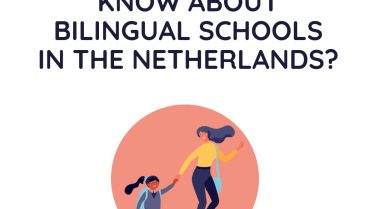
Bilingual schools Netherlands | What do I need to know?
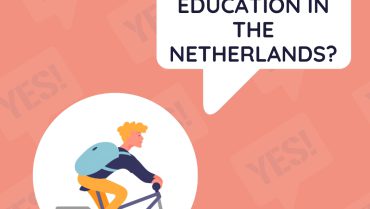
How much does education cost in the Netherlands?

IMAGES
COMMENTS
The school can afford free Chromebooks for each child because they don't spend a lot on books. "Even when they are studying for an exam, it's not like a normal school where we have to spend ...
The Agora School in Roermond, Netherlands has 250 students and a long waiting list. School's entire approach is centred around projects as it focuses on "learning, not teaching". Students at Agora range from 12 to 18 years in age and each of them is given control over their own educational journey. They are able to explore and learn about ...
There are no school subjects, no tests, no homework, no textbooks or methods, no classroom instruction. Sjef Drummen, one of the co-founders of the Agora school in Roermond, the Netherlands, says "We work fully personalized. ... And Joshua is now 12 (2023) and in his first year at the innovative Dutch secondary school system called Agora that ...
The Netherlands also has a "C culture" when it comes to education. There's not nearly as much homework, not nearly as much pressure to get high grades and you can get into a cheap university that's still in the top 100 or 50 world wide (haven't checked for a while) where you can enjoy a really good education.
A school with no classrooms, homework or grades encourages creativity and imagination, rather than an ability to sit still and nod • Time to reset: more brilliant ideas to remake the world
This may be one of the reasons why Netherlands has one of the best education systems in the world! 12. Dutch students usually eat at home instead of at the school cafeteria. While school days last from around 8:30 AM to 3 PM in the Netherlands, students go home for lunch instead of eating at a school cafeteria.
A school in the Netherlands has no classes, no classrooms and not even a curriculum in a break from the conventional approach applied in educational institutions across the world. "We get around 70 requests a week from all over the world from people wanting to come and see what we do here," according to Rob Houben, Manager of the Agora school ...
2. For the most part, Dutch students under the age of 10, receive very little or almost no homework. Some newspapers circulating around actually state that abslutely no homework given to school children under the age of ten. The amount of homework depends upon the discretion of the local schools, but overall, Dutch teachers and parents ...
In the Netherlands, school is compulsory for children from the age of 5 until 16, or until they have a diploma. The philosophy behind the Dutch education system is to encourage pupils to live and learn in an open-minded, independent, and creative manner. ... Most Dutch primary schools don't give homework until the higher classes, or give no ...
Primary education in the Netherlands . In the Netherlands, there is a distinction between openbare and bijzondere schools. The openbare schools are both funded and run by an independent foundation that was originally set up by the government. They are always non-religious. About two-thirds of the population attend bijzondere (special) schools, which have their own board and often follow ...
In the first two years, kleuters (four and five-year-olds) are guided through a gradual transition from learning-by-playing to learning to read and write. In practice, this means that some children (those born in the summer or autumn) have a full two years at school before they go into group three (the "late" pupils). Ad by Refinery89.
In the Netherlands, nearly one out of five fourth graders reported doing no homework on an average school night, even though Dutch fourth graders put their country in the top 10 in terms of ...
The Dutch school week is different from an American school week. A school day in primary school usually takes place from 8:30 a.m.-3:00 p.m. on weekdays, but students go home for lunch instead of eating at a school cafeteria. On Wednesdays, schools dismiss students around noon. The Netherlands puts its youth first when it comes to education.
In the Netherlands, all children aged 5-18 are required to attend school. Hence, 'home schooling' is not allowed. There are, however, a few situations in which an exception can be made. If you have objections to the view of life (e.g. religion) of every school in your area, you need to give a declaration to […]
Education is compulsory ( leerplicht) in the Netherlands from the ages of five to 16, however, most children start to attend primary school at age four. While the structure of primary education in the Netherlands is straightforward, the structure of the Dutch secondary education system often seems confusing because of the multiple paths and ...
Dutch schools receive state funding, making them more affordable (schools typically only ask for a parental contribution) The importance of being fluent in your first language. ... In a Dutch school, homework is not common. From the age of 11, around one hour of homework per week can be expected. The child is capable of doing their homework by ...
Primary Education in the Netherlands. Primary education in NL works as follows: In the Netherlands, children attend primary school from the age of four and until they are twelve. They spend their first two years in kindergarden. In their final year, pupils are advised on which type of secondary education they should pursue.
The education system in the Netherlands begins with kindergarten and, by the age of four or five, children have moved to Stage 1 -elementary school- where they will spend the next seven to eight years. Full-time education is compulsory from 5-16, and from 16-18 young people must attend some form of school for at least two days a week.
There are no school subjects, no tests, no homework, no textbooks or methods, no classroom instruction. Sjef Drummen, one of the co-founders of the Agora school in Roermond, the Netherlands, says "We work fully personalized. That is, every student has his or her own learning path.
In the Netherlands, most primary schools can pick their own hours which follow a similar pattern. There are 3 full days (Monday, Tuesday, Thursday) and two half days (Wednesday and Friday). Some primary schools, however, extend the half days to three-quarter days as the child progresses up the year groups. So instead of finishing at 12:30, your ...
Government-funded schools in the Netherlands. The vast majority of Dutch pupils attend government-funded schools, but some parents send their children to one of the few private schools.. The government-funded schools are either openbare (public) or bijzondere (special) schools. Regardless, all schools have to adhere to the core objectives set by the Ministry of Education, Culture, and Science ...
In grades 3 through 8, most primary schools assign kids a 'boekbespreking' (book presentation) and a 'spreekbeurt' (presentation on a subject of your kid's choice). At most Dutch primary schools, kids will have regular homework starting from 6th grade (age 9). This homework won't be daily, but once or twice a week.
The Compulsory Education Act, Article 2, paragraph 1, states that school attendance is mandatory. However, many are able to obtain a religious exemption to compulsory education. In this respect, the Netherlands—along with the German Länder—deviates from most of the other European countries where homeschooling is recognized as a regular ...